#the native americans and actually WORKED with them and traded with them ad asked for the land and WAS GRANTED it instead of stealing it
Explore tagged Tumblr posts
Text
So I've been thinking a lot about Thomas Hamilton (lmao what else is new) but specifically in the ways in which he's flawed. Because he is flawed. We always like to say no one in Black Sails is totally good or bad - and I absolutely think that is true, and applies to Thomas as well.
The main criticisms of him seem to be his idealism and the ways in which he supports the colonialist empire. That he was incredibly privileged, and that the people he surrounded himself with were not even close to good people.
(Especially valid since the Enlightenment thinkers he is touching elbows with are the ones who started arguing for why slavery was Actually Good and caused a lot of the social problems that still extend to today in terms of ableism and homophobia and racism and like you name it the Enlightenment thinkers probably helped.)
And all of that is absolutely true when we first meet him - especially in his first interactions with James, Thomas comes off as kind of smarmy and the exact kind of person we all love to hate - someone who is privileged and doesn’t even realize how much. And reading him as the ‘benevolent colonialism’ character is totally valid.
In the show’s overt text, he appears as a foil to the blatant colonialists - Alfred, Woodes, etc. The ‘at least he’s better than these guys’ guy. And he is a great commentary on the Enlightenment as a whole, on how privileged people can mean well and still fuck up, and still be wrong. Because his plan with James is absolutely not the end all be all. It’s flawed - it supports the empire and doesn’t(blatantly) take into account slavery or indigenous genocide or any of the supports that would be required for it to function. And also because he frankly expects a *lot* of James that he has no right to expect. “I need someone who is willing to put his career on the line for the plan I want to enact” is not exactly the sexiest of pick-up lines when you’re talking to someone whose career is literally the only thing he has, T.Ham.
I like to sort of affectionately call him the sexy lamp, because at first glance he seems to be this very static character whose only trait is ‘good’ who is the MC’s motivation for everything(and his ‘reward’ at the end) but not really much else. And he does fit a lot of the tropes of The Love Interest.
But the real ‘problem’ I suppose, is that we never get to see him grow out of any of that. We do see him start - the Thomas Hamilton who sniffs around James' past and thinks he knows All About Pirates and that "The New World Is A Gift, Lieutenant" is not the same Thomas we see in his final moments in London. But with the other characters, and particularly Flint, we get to see that arc of growth and reasoning through a microscope, whereas with Thomas it’s all subtext.
And that’s not to double down on the ‘Thomas is perfect’ thing. I do genuinely think he, just like all the other characters in Black Sails, has things that are good and bad about him. And like, particularly the colonialism thing - all of the characters in Black Sail function within a colonialist system - Thomas more closely than most of them. Possibly the only ones who wholly reject the system are the Maroons(Julius in particular), I could see an argument for Vane, and *maybe* there’s an argument for Flint as the very end of the series. All of the others - Silver, Jack, Max, Eleanor, Flint, etc, and yes, Thomas - all function within the society they were raised in and the biases inherent within it.
And breaking out of that is incredibly hard to do. Since the entire finale of the show has to do with what an empire will force us to choose between, and how for some, personal sacrifices are not allowable to forward a movement, I think it’s fair to say it might even be impossible for some of them.
But the thing that I personally love about Thomas (and Flint) that is missing in the others is the *acknowledgement* of that. Thomas flat out says he knows he is privileged. He asks James to help him, because he recognizes that he is not capable of seeing the solutions that would really be helpful. And I think someone like that given access to people with real world experience of the horrors of colonialism(someone like Mr. Scott, or the Maroons) would absolutely be open to changing when he is proven he’s wrong, and sacrificing his personal comfort in order to help those who have more to lose.
Thomas may have been an idealist, but I don’t think he was at all naive about what he was risking. It would have been impossible for him to be, with everyone around him(Miranda, Peter, James, etc) telling him what is at stake for him personally. And I think there is a very real discussion to be had about him being willing to put other people’s safety on the line(Miranda) for his idealism. But he absolutely knew the risks of what he was doing, he just thought it was that important to try.
*That* is what speaks to me about Thomas’ character. That when he is shown he’s wrong (with the hanging of the pirate and James showing him that society ‘needs it’s monsters’) he changes. He’s willing to fight for what he sees as injustice. The thing that speaks to me about Thomas isn’t that he’s perfect, it isn’t that he is some magical paragon of pureness that even through his immense privilege managed to come out Good uWu. It’s that he realizes that he is *not* perfect, that the *World* is not perfect, and makes genuine efforts - in the best ways he knows how - to change that and to affect the world around him. To make changes that would genuinely benefit society and people(as he understands them). He learns, and he tries to grow, and he tries to use his power to make things better.
And again, he fails. He does fail. His goal was to change England and to make them realize that a system of government that survives based on the subjugation of The Other was wrong, and he fails at it. But he tries, and he does realize the problem. And that’s all we can do, yeah? Just....all we can do is fucking try our best, admit when we’re wrong, and try to do better. He is a reminder that those in a place of privilege need to use it: that we need to care about things that don’t necessarily effect us because it’s what’s *right*. But also that we’re going to fuck up just by the very nature of our privilege. That we all, no matter how ‘good’ we want to be, have unlearning to do, and sometimes our best isn’t going to be good enough.
Sometimes our best is still going to hurt people. Thomas is a reminder that we all intersect on so many different levels and that sometimes we see it and sometimes we are blind to it, and that you have to listen and actively seek out people who intersect with the world differently, and above all you’ve got to be kind, and you’ve got to realize that the only way to exist radically in a world that wants to separate us is to live without the shame of failing. Know no shame - the shame of failure, the shame of not being perfect, the paralyzing fear that we are never going to be good enough. Because we’re not. We’re all flawed. But that doesn’t mean we shouldn’t try.
#thomas hamilton#black sails#long post#black sails meta#black sails discourse#anyway thinking about this A LOT in writing doubting thomas#in trying to show the WAYS in which thomas is juwst as flawed as anyone else and just - the ways in which he learns that#and has to reckon with it#anyway i love thomas a lot because i relate to him a lot and like thats all you can do in fandom you just#*Sees character you relate to* and you grab hold with your teeth and hold on for dear life#also this post is long enough but i think a LOT about how thomas is sort of the stand in for oglthorpe#since historical oglethorpe was a staunch prison reformer and abolitionist once he figured out what the horrors of colonialism were about#how he tried to reform prisoners and give them land and a new start in georgia(sound familiar?) and worked SUPER closely with#the native americans and actually WORKED with them and traded with them ad asked for the land and WAS GRANTED it instead of stealing it#and how he was lifelong friends with ayuba and when ayuba was like 'hey these white guys in london are makign me nervous'#he helped to pay his way back to africa#and for thomas to end up on (a bastardized version of) his plantation i think#is a clear indication of where thomas would have been going and probably where he ended up#(Also all of this is NOT a 'you gotta like thomas' thing like - i realize there are very real reasons why people just Wouldnt Jive with him)#but this is mostly in response to a post about how everyone seems to think thomas is perfect and no one criticizes him#so here is me criticizing thomas#we can love things ad still acknowledge the probematic aspects of them#also i know some of this directly conflicts with an earlier post i made about thomas NOT being a colonialist#call that personal growth and changing our opinions based on multiple conversations where people made me put my money where my mouth is#SORRY ABOUT THE GIANT POST IM GONNA PIN TO MY BLOG#milos black sails meta
65 notes
·
View notes
Text
“...Where the show had sensibly added yurts and merely forgot to have any way to move them, Martin has the Dothraki live in “palaces of woven grass” (AGoT, 83) which I assume the show did not replicate because the moment someone described doing that everyone realized what a bad idea it was and moved on to something more sensible like a yurt covered in leather. Grass and reeds, of course, can be woven. However, as anyone who has done so will tell you, the idea of trying to weave what is essentially a grass basket the size of a tent in a single day is not an enviable – or remotely possible �� task.
Trying to move such a giant grass basket without it coming apart or developing tears and gaps is hardly better. And at the end, a woven-grass structure wouldn’t even really be particularly good at controlling temperature, which is its entire purpose! It is rather ironic, given that unlike the show’s Dothraki, Martin’s Dothraki do seem to use at least some carts, because Viserys is forced to ride in one (AGoT, 323) and so could bring yurts with them. They just don’t.
More to the point, it is very clear that Martin imagines the Dothraki subsistence system to consist almost entirely of horses. The Dothraki ride horses, they eat horses, they drink fermented mare’s milk. The Dothraki – as in the show – are presented as eating almost entirely horsemeat. They eat horsemeat at the wedding (AGoT, 84), and Daenerys’ attendants are surprised that she asks for any kind of meat other than horse (AGoT, 129), although Daenerys herself seems to have access to a more agrarian diet (AGoT, 198) and other characters observe that the Dothraki prefer horsemeat to anything else (AGoT, 272). There is no mention of herds of anything except people and horses moving with the khalasaar.
There is also no sense that the Dothraki are hunting big game like one would in the Great Plains; Drogo kills a hrakkar – a sort of lion, apparently – as a display of bravery (AGoT, 495) but there is nothing that would suggest the kind of bison-based subsistence system (at the very least, if that was the system, Daenerys would be well aware of it, because the camp would be awash in bison-products). I found no references to larger game and the Wiki only offers, “packs of wild dogs, herds of free-ranging horses, and rare hrakkar” which is, needless to say, not enough to make up for the absence of large herds of bison, especially for trying to feed Drogo’s camp of perhaps a hundred thousand people (or more!).
They clearly do not herd sheep. This becomes painfully obvious with the raid on the Lhazareen village. The Dothraki – Khal Ogo’s men – in raiding a sedentary pastoralist settlement, kill all of the sheep and leave them to rot. Dany sees them “thousands of them, black with flies, arrow shafts bristling from each carcass” and only knows that this isn’t Drogo’s work because he would have killed the shepherds first (AGoT, 555). And we are told that the people there “the Dothraki called them haesh rakhi, the Lamb Men….Khal Drogo said they belong south of the river bend. The grass of the Dothraki sea was not meant for sheep” (AGoT, 556).
We are told that the Dothraki have “vast herds” but this can only mean herds of horses, given that they apparently take offense at any other animal being grazed on the Dothraki and look down at shepherds in general (AGoT, 83). To be clear, for a nomadic people moving over vast grassland to spurn the opportunity to capture vast herds of sheep would be extraordinarily stupid. At the very least, thousands of sheep are valuable trade goods that can literally walk themselves to the point of sale (we’ll get to this idea that the Dothraki also don’t understand commerce a little later, but it is also intense rubbish; horse nomads in both the New World and the Old understood trade networks quite well and utilized them adroitly). But more broadly, as I hope we’ve laid out, sheep are extremely valuable for subsistence in Steppe terrain.
But Martin does not even do horse-string logistics right. While Daenerys eats cheese (AGoT, 198), we never hear of the Dothraki doing so. The Dothraki do have an equivalent to qumis, but no qulut, no yogurt. Even the frankly badass bit about drinking the horse’s blood as a source of nourishment does not appear. The horses themselves are also wrong. First, Daenerys and Drogo each have one horse they use, seemingly to the exclusion of all others. If you have been reading this long, you know that is nonsense: they ought to both (and Jorah too, if he intends to keep up) be shifting between multiple horses to avoid riding any of them into the ground. Moreover, Martin has imported a European custom about horses – that men ride stallions and women ride mares – into a context where it makes no sense. Drogo’s horse is clearly noted as a red stallion (AGoT, 88) while Daenerys’ horse is a silver filly (AGoT, 87). But of course the logistics of Steppe raiding revolves around mares; in trying to give Drogo the ultimate manly-man horse, he has actually given him the equivalent of a broken down beater – a horse only able to fulfill a slim parts of its role.
Finally, the group size here is wildly off. For comparison, Timothy May estimates that, in 1206, when Temujin he took the name Chinggis Khan and thus became the Great Khan, ruling the entire eastern half of the Eurasian Steppe, that the Mongol army “probably numbered less than a hundred thousand men” (May, The Mongols, (2019), 43), though by that point his army included not merely Mongols, but other ethnically distinct groups of steppe nomads, Merkits, Naimans, Keraites, Uyghurs and the Tatars (the last of which Chinggis had essentially exterminated – next time, we’ll get to the nonsense of the Dothraki being a single ethnic group).
That is, to be clear, compared to the armies of sedentary empires of similar size (which is to say, huge) a fairly small number! We’re going to come back to this next week, but the strength of Steppe nomads was never in numbers. Pastoralism is a low density subsistence strategy, so the steppe nomads were almost always outnumbered by their sedentary opponents (Chinggis himself overcomes this problem by folding sedentary armies into his own, giving him agrarian numbers, backed by the fearsome fighting skills of his steppe nomads).
Khal Drogo’s khalasaar, which moves as a single unit, supposedly has 40,000 riders (AGoT, 325-6); Drogo is perhaps the strongest Khal, but still only one of many. With 40,000 riders, we have to imagine an entire khalasaar of at least 120,000 Dothraki (plus all the slaves they seem to have – put a pin in that for later; also that number is a low-ball because violent mortality is clearly very high among the Dothraki, which would increase the proportion of women and children) and probably something like 300,000 horses. At least. Of course no grassland could support those numbers without herds of sheep or other cattle. As noted above, Isenberg’s figures suggest much lower density in the absence of herding – just under 70,000 nomadic Native Americans on the Great Plains in 1780 (and less than 40,000 in 1877), including women and children! But more to the point, no assemblage of animals and people that large could stay together for any length of time without depleting the grass stocks.
Even if we ignore that problem and even if we assume that the Dothraki have Mongol-style pastoral logistics to enable higher population density on the Dothraki Sea, my sense is that the numbers still don’t work. Even before Drogo dies, we meet quite a few other independent Khals with their on khalasaars – Moro, Jommo, Ogo, Zekko and Motho at least and it is implied that there are more. Drogo’s numbers suggests he should be roughly at the stage Chinggis Khan was in 1201 or so – with Chinggis controlling roughly half of the Mongolian Steppe, and his old friend and rival Jamukha the other half. But Khal Drogo has evidently at least a half-dozen rivals, probably more. It is hard to say with any certainty, but the numbers generally seem too high. Having that entire group concentrated, moving together for at least nine months (long enough for Daenerys to become pregnant and give birth) would be simply impossible inside of a grazing-based subsistence system, sheep or no sheep.
In short, no part of this subsistence system works, either from a North American or a Eurasian perspective. This isn’t actually much of a surprise. Martin has been pretty clear that he doesn’t like the kind of history we’re doing here. As he states: I am not looking for academic tomes about changing patterns of land use, but anecdotal history rich in details of battles, betrayals, love affairs, murders, and similar juicy stuff.
That’s an odd position for an author who critiques other authors for being insufficiently clear about their characters’ tax policy (what does he think they are taxing, other than agricultural land use?). Now, I won’t begrudge anyone their pleasure reading, whatever it may be. But what I hope the proceeding analysis has already made clear is that it simply isn’t possible to say any fictional culture is ‘an amalgam’ of a historical culture if you haven’t even bothered to understand how that culture functions. And it should also be very clear at this point that George R. R. Martin does not have a firm grasp on how any of these cultures function.”
- Bret Devereaux, “That Dothraki Horde, Part II: Subsistence on the Hoof.”
73 notes
·
View notes
Link
In a candid conversation with the Star, Manji said “Schitt’s Creek” producers did not instruct him as to how Ray should sound.
“It is a very slight Indian accent — somebody who was probably raised in Canada, but probably was born in India or Pakistan,” he said from his home in Los Angeles.
“I don’t regret that because I think it actually works for Ray. He wasn’t like everybody else in that town. He was from somewhere else.”
Manji said he’s OK with viewers questioning his choices, but rather than focus on accents, he said, critics could ask why his character didn’t have a more fully developed story, like a relationship or a family.
“If you want to criticize something, do that,” he said. “We need to have three-dimensional characters.”
[full article text below the cut]
At the start of Rizwan Manji’s acting career in the 1990s, the only roles available to him were those playing convenience store clerks and cab drivers. The parts usually required him to fake an Indian accent — just for laughs.
“We would joke about it. ‘This is so offensive, this is so offensive,’” recalls the Toronto native. “It’s not like we didn’t know.”
More than two decades later, Manji’s grin-and-bear-it perseverance has paid off. At 46, Manji now boasts a long — and diverse — list of TV and film credits. In September, he joined castmates from the hit CBC comedy series “Schitt’s Creek” in celebration as the show nabbed a record-breaking nine Emmy Awards.
That doesn’t mean, however, he still doesn’t grapple with questions about his acting choices.
While “Schitt’s Creek,” about a wealthy family that loses its fortune and is forced to move to a backwater town, won raves for its messages of inclusivity and positive queer representation, a segment of viewers took to social media to criticize Manji’s character, Ray Butani, the town’s bumbling jack of all trades — who speaks with an accent.
What irked them was that Ray, one of the few recurring people of colour on the show, seemed like a caricature — a rehash of the stereotypical, emasculated South Asian male. They also complained that Manji’s accent came across as “cringey.”
“Why go to the effort of writing in a character with an Indian name, played by an Indian actor, whose main personality trait is that he is stupid and has an accent?” Rishi Maharaj, a Port Hardy, B.C., engineer and avid TV viewer, wrote on Twitter days after the show’s Emmy sweep.
Across North America’s TV and film industry, there is broad consensus about the need to fight stereotypes and offensive tropes in casting. But the debate among actors of colour over whether they should fake accents remains fraught.
Some Hollywood actors, such as Aziz Ansari and John Cho, have reportedly turned down roles, citing the history of Hollywood playing up accents for laughs. (Think Mickey Rooney’s portrayal of Mr. Yunioshi in the 1961 romantic comedy “Breakfast at Tiffany’s,” complete with taped eyelids, buck teeth and cartoonish accent).
They worry that parts requiring them to speak with accents do nothing to help the cause of minority actors who are often typecast in secondary roles or as sidekicks, and who continue to be under-represented on TV and film.
Others say it’s important to represent linguistic diversity and see no harm portraying characters who speak in broken English, as long as their accent is not the butt of a joke and in keeping with a character’s backstory.
In a candid conversation with the Star, Manji said “Schitt’s Creek” producers did not instruct him as to how Ray should sound.
“It is a very slight Indian accent — somebody who was probably raised in Canada, but probably was born in India or Pakistan,” he said from his home in Los Angeles.
“I don’t regret that because I think it actually works for Ray. He wasn’t like everybody else in that town. He was from somewhere else.”
Manji said he’s OK with viewers questioning his choices, but rather than focus on accents, he said, critics could ask why his character didn’t have a more fully developed story, like a relationship or a family.
“If you want to criticize something, do that,” he said. “We need to have three-dimensional characters.”
The character that has generated one of the most heated debates in recent years when it comes to accents is Apu, the Indian-American shopkeeper on the long-running animated series “The Simpsons.” Until recently, the thick-accented character was voiced by actor Hank Azaria, who is white.
In 2017, American comedian Hari Kondabolu came out with a documentary, “The Problem With Apu,” in which he pressed the case that the show fomented racial stereotypes about Indian people.
In interviews at the time, Kondabolu shared that, as a kid, Apu was “the only Indian we had on TV” and that he was happy for “any representation.” But then on the playground, he had to deal with kids mimicking Apu’s accent.
In the documentary, he gets Dana Gould, a former writer on the show, to admit, “There are accents, that by their nature, to white Americans, sound funny. Period.”
With criticism mounting, Azaria, who had voiced Apu for three decades, announced he was stepping away from the role, telling the New York Times earlier this year: “Once I realized that that was the way this character was thought of, I just didn’t want to participate in it anymore.”
There is growing sensitivity among artists, writers, directors and producers to avoid stereotypes and invest in “fully humanized, realized characters,” Steven Eng, an actor and voice and speech instructor at New York University, told the Star.
“There’s certainly been a whole history — that I don’t think any of us can deny — in film and television and the theatre where characters were stereotyped,” he said. “I think there’s so much more awareness, so much more determination to not go that route.”
But even “groundbreaking” shows, such as “Kim’s Convenience” and the recently cancelled “Fresh Off the Boat,” which were heralded for elevating Asian-Canadian and Asian-American visibility and immigrant experiences, have not escaped criticism, accused by some viewers of employing storylines and accents that do not ring true.
Cast members, in turn, leapt to the defence of their shows — and their accents.
“Some people are like, ‘Oh, stereotypical accent!’” Constance Wu, lead actress on “Fresh Off the Boat,” told Time magazine regarding her character’s Taiwanese accent. “An accent is an accent. If there were jokes written about the accent, then that would certainly be harmful. But there aren’t jokes written about it. It’s not even talked about. It’s just a fact of life: immigrants have accents.”
Paul Sun-Hyung Lee, the lead actor in “Kim’s Convenience” told Maclean’s his character’s Korean accent is “part of who he is, but it isn’t the joke.”
“Yes, we’re in the entertainment field, and we will mine some of that because it is situational humour. You will get a point where we’ll say, ‘Here’s where some fun can be made, playing with the accent, and his inability and people mishearing what he says.’ But at the same time, that’s not all it is,” he said.
Jimmy O. Yang, who starred in the HBO series “Silicon Valley” and whose character spoke with a heavy Chinese accent, told Huffington Post the key is to portray immigrants with humanity.
“It’s maybe a better thought to change the perception of an accent than to avoid it all together,” he said. “I take offence (when people don’t go for parts with accents) ― it’s like saying, ‘I’m better than my immigrant brother with an accent.’”
Yang added he drew inspiration from his mom and relatives in Shanghai to develop his accent for the show. “It’s not just a (lousy) impression of a Cantonese Bruce Lee accent.”
Still, some actors have declared outright they will not do it.
“For me, personally, any time I’ve been asked to do that, I feel like — it feels like it’s making fun of people that have that accent if I do it and don’t have that voice,” comedian Aziz Ansari told NPR in 2015, years before he faced a public allegation of sexual misconduct.
“It feels like you’re doing it so white people can laugh at Indian people,” he said at the time.
That’s kind of how Maharaj felt watching Ray on “Schitt’s Creek.”
“I did find it cringey. The first thought that came to mind was it reminded me of Apu in ‘The Simpsons,’” he told the Star.
In The Problem With Apu, South Asian-American comedian Hari Kondabolu confronts his long-standing “nemesis” Apu Nahasapeemapetilon – better known as the Indian convenience store owner on The Simpsons. Creator and star Kondabolu discusses how this controversial caricature was created, burrowed its way into the hearts and minds of Americans, and continues to exist – intact – nearly three decades later. Featuring interviews with Aziz Ansari, Kal Penn, Whoopi Goldberg, W. Kamau Bell, Aasif Mandvi, Hasan Minhaj, Utkarsh Ambudkar, Aparna Nancherla
“To me what it sounds like is what a person from Saskatoon thinks a person from India sounds like. ... I’m sure he could’ve been a funny part of that show without an accent.”
Maharaj wasn’t alone. Arif Silverman, an actor and playwright in New York, posted a lengthy Facebook post in October sharing his conflicted feelings about the show.
“Schitt’s Creek has become one of my all-time favourite shows. But they did their South Asian characters dirty,” he wrote.
“Especially Ray, who plays directly into the racist South Asian trope of being an emasculated, goofy buffoon who no one takes seriously, not least in part because of his accent.”
Silverman told the Star Ray’s accent seemed “part of the joke” and struck him as a “betrayal” from a show that preached inclusivity and whose main romance was a gay love story.
“I’m half South Asian — my mother is from Bangladesh. … And so I think a lot about representation of South Asians in the media,” he said. “If you’re really going to talk about inclusivity it can’t be at anyone’s expense.”
Manji says he faced a lot of struggles as a brown actor at the start of his career.
Back then, he was often pigeonholed into narrow roles, such as the cabbie or 7-Eleven store clerk. One hundred per cent of his roles required him to fake a South Asian accent.
“It was very strictly, like, the joke was on the accent,” he said.
But he accepted the parts because he needed the work.
He did draw a line with one type of role.
“I’m Muslim, so I was more the guy who was like, ‘I’m not being the terrorist.’”
There was one time, however, when he auditioned to play an Islamic Studies professor on the show “24.” He was given limited information about the character. It turned out he was a bomb maker.
But the money was too good to pass up. He took the part.
“I rationalized it in my head, ‘Oh, it’s season 8, and they have good Muslim characters. … I don’t know if I made the right decision,” he said.
“To be clear, I’m OK with being the bad guy. I’d love to play the bad guy. It’s just when it’s this kind of thing where you’re screaming ‘Allahu akbar’ and bombing people.”
In 2010, Manji was cast in the short-lived NBC sitcom “Outsourced” set in an Indian call centre. He and his castmates employed accents, which some critics derided for lack of authenticity.
It’s fine if people want to criticize the quality of the accents, he said, but it wouldn’t have made sense for these characters not to have accents.
“The show was shooting in America about living in India. I don’t know what the other option was,” he said, adding that he channelled his father in developing the accent for that show.
Another thing to keep in mind is that accents have to be understandable to North American audiences, Manji said. For instance, during the filming of the movie “Charlie Wilson’s War,” Manji, who played a Pakistani colonel, said he settled on a “sweet spot” where his accent “sounds foreign” but is “not so thick that it becomes comedic or unintelligible.”
Manji said he did not have to audition for “Schitt’s Creek” but was offered the role of Ray, the town’s real estate agent, travel agent, photographer and Christmas tree salesman.
When he went for his first table read in Toronto, he’d had no prior discussion with the show’s writers or producers about what Ray would sound like.
Because most of his demo tape consisted of his work on “Outsourced,” Manji assumed that was the kind of voice producers were looking for. He went with a slightly toned-down version.
“Afterwards, I went up to Dan (Levy, the show’s co-creator) and said, ‘Hey just want to check in.’ He said, ‘I love what you did. It was funny.’ That ended up being the character for six years.”
Maharaj says he can’t help but feel Manji was selling himself short — playing to what he thought “a white audience might expect or respond more favourably to” to get the job. He likens it to job applicants of Asian descent who anglicize their names on resumes.
“I’m encouraged to hear he had agency, that they weren’t like, ‘We need you to do the accent,’” he said.
“I’d feel better if they were asking him to do a British accent or Brooklyn accent because if you’re doing this Indian accent and the character is comedic, it is nonetheless playing into that trope.”
Levy, who is also from Toronto, declined an interview request. Instead, he released a statement through his publicist.
“Ray was conceived as a character of Indian decent which we cast with Canadian-born actor Rizwan Manji, who is of Indian decent. No accent was called for in the casting or specified in the scripts,” it said.
“The thoughtful choices that Rizwan made in his portrayal in the audition room perfectly encapsulated the warmth and the energy of Ray. All characters on our show were created with love, respect and humanity. It has been gratifying to have these intentions reflected through the overwhelming audience support for these characters. That said, I welcome any perspectives that encourage conversations about diversity, especially in entertainment.”
Despite what critics might think, Manji said he has felt more empowered in recent years to make creative decisions about his characters.
Manji, who had a role in NBC’s musical comedy “Perfect Harmony,” which was cancelled this year, said when he was approached about playing the part of a pastor, he was the one who initiated the idea of giving the character a foreign accent.
Because the character was raised by missionaries, it wouldn’t have made sense for him to not have one.
Conversely, when he was asked a couple years ago to read for a pilot for a dramatic series in which his character was a Muslim father he told the casting director he didn’t want to do an accent.
“I said, ‘You know what? I’d rather not. That’s not going to excite me about this part,’” he said.
“I ended up getting the job. I found my voice.” (The pilot never made it to series).
Manji, who guesses about 60 per cent of his roles in more recent years have involved accent work, says remarks by actors who refuse to do accents are “dangerous” because they could end up limiting the types of roles available to minority actors.
His worry is casting directors will go to India in search of authentic accents, overlooking North American-born actors, like him.
“I’m already marginalized.”
Nobody fusses when Meryl Streep performs with an accent, he adds.
Ishani Nath, a freelance entertainment and lifestyle journalist in Toronto, says anytime she sees an accented character who also provides comedic relief, it raises a bit of a red flag.
But she’s hesitant to criticize actors for taking those roles, knowing that opportunities are not easy to come by.
“I’m way more interested in criticizing writers, producers, (and asking): Why are you asking for these roles to be accented? … Is there an actual reason and backstory?”
Nath says she is starting to notice deeper conversations about how different cultures are represented on screen and what nuances can be added to make characters more complex.
She says a good example of this is the hit movie “Crazy Rich Asians,” whose actors exhibited a range of regional Asian accents.
“It’s important to note that the problem with accent roles isn’t the accents themselves — plenty of characters in ‘Crazy Rich Asians’ have accents, but no one has the exaggerated or generic ‘Asian’ accent that has historically been played for laughs in Hollywood,” she wrote in a 2018 article in Flare.
Jhanik Bullard, a writer and member of BIPOC TV & Film, a collective of Black, Indigenous and people of colour working in Canada’s entertainment industry, says it is no longer acceptable for characters to have accents “just because.”
“It should actually have an authentic origin as to why this character sounds the way they sound,” he said.
Audiences are also not as forgiving as they may have been in the 1990s if the accent sounds botched or inauthentic.
What is encouraging, he says, is that more doors are being opened for people of colour to tell their stories and there are more platforms for those stories to be to told.
To that end, Manji says he and his partners have initiated a handful of projects that are in various stages of development. One is a show about a Muslim guy who becomes mayor of a major city. Another is a sitcom about a “normal Muslim family” — something that “resembles me more.”
Does the character he envision for himself speak with an accent?
“Since I want it to be closer to me, then I would say not.”
#definitely a good discussion about ray and about riz's other roles and about south asian rep in general#schitt's creek#schitts creek#rizwan manji#ray butani#press#toronto star#long post
86 notes
·
View notes
Text
Magical person in history, on not intervening on human rights issues
I am writing a dating sim/visual novel set in the present day. A major (non-romanceable) character is an ancient sorceress who moved from France to the Pacific Northwest in the 1850s. She is white. She is shown to have powerful magic. She also works closely with the main characters and develops personal relationships with them as she teaches them magic, giving each character comfort and advice during their respective stories.
Considering the events in America around her move-in date, there’s no way she could have missed the horrible human rights abuses going on, and there’s no way she was too powerless to help, even when most of the fighting and slavery was so far away. So I’m having trouble balancing “don’t make her a white savior by having her personally fireball Robert E. Lee” against “Hogwarts University is cancelled because Dumbledorette didn’t care about slavery.” I had the idea that the magical regulating body back home in France didn’t want her to intervene due to political reasons, so she helped out in small ways that could safely fly under the radar. She later realized that she prioritized her social standing over the suffering of countless others, so she began making a point of reducing human suffering as much as she could.
I can’t imagine this will show up in more than one small scene, but doing it wrong could really sour the whole thing. Is this backstory still icky? Should I just not mention it and let readers headcanon what they please?
I’m wondering what you think was happening in the PNW at the time for the fighting and slavery to be “far away.” Washington State had the Cayuse War at exactly this time period, Oregon didn’t ratify treaties and was calling for the extermination of “the I*dian race” in roughly this time period, and California’s Gold Rush created the California Genocide starting heavily in the 1840s, picking up steam in the 1850s, which included slavery of California Natives thanks to a law enacted in 1850 that lasted for 13 years.
This is all from the top five results of googling “pacific northwest genocide 1850”, for the record. It’s not exactly hidden history.
So suddenly your character’s lack of movement in healing the poisoned populations as disease ravaged the area, in attempting to stop or at least buy and free the enslaved Natives being auctioned on their doorstep, or in attempting to get treaties ratified and honoured looks a lot more damning.
This is not counting any of the future events that happened at the turn of the century, including the Chinese Exclusion Act, the Hawai’i monarchy being overthrown, and Federal Order 9066, which is the WWII concentration camps (that included Japanese, German, and Italian individuals). This is just to name a handful of coastal issues in the next 100 years, completely ignoring Jim Crow, residential schools, the San Francisco Earthquake (which nearly had Chinese people relocated to the worst land imaginable for gentrification purposes, had the Empress of China not stepped in), and many others.
In short: she would have had hundreds of opportunities to end suffering, and focusing on a single event as a small scene feels disproportionate to how much she could have done.
And honestly? The French were no angels.
The Second French Colonial Empire was one of the largest empires in history, and it began in 1830, covering roughly a third of Africa. The First French Colonial Empire began in the 1600s, and had both India and North America, primarily Canada.
She was white. French. You don’t specify her birth year other than “ancient”, but considering the sheer amount of territory-grabbing France has been doing since Normandy invaded England in the eleventh century AD, I’m going to assume her birth year is somewhere more recent than that. Therefore, I’m going to assume she has been around the Catholic Missionary Attitude that France had; one could call that attitude the bedrock of its existence for at least a millennia (and is still visible in modern day).
So tell me: when did she break out of it? What made her even care about human atrocities, when she has likely grown up watching France commit them her entire life?
Because let me just say, she has had plenty of opportunities to realize she did nothing in the face of her neighbours’ hatred of people not like them, and she has never taken them before.
Did she (or her parents, if she was born around this time) decry Napoleon re-introducing slavery in France in 1802? Side with Haiti when it declared independence in 1804, and hate that the government forced Haiti to pay for the “theft” of slaves and land (that was only paid off in 1947)? Is she presently championing for France to pay Haiti the money it wrongfully took from the country? Did she hate the delays in stopping the French slave trade, which took 11 years to actually stop after it was banned on paper?
Unconditional emancipation was only reached in 1848, after all. I don’t care if she was born in 1830, there was some sort of major racial event happening in France all throughout the late 1700s to mid-1800s. Where did she side then?
Abolitionism was not an unknown concept in France, so it is possible she had already been working towards it quietly, but that would mean she would have felt guilt at inaction much earlier, depending on when she began decrying slavery—if she was even delayed in decrying it, which I will admit is possible.
And if she was an abolitionist, would she have even listened to the French government in not at least easing the genocide around her? Because she would have watched nearly 100 years of the French dragging their feet on stopping slavery in their empire, and known how BS it all was… if she saw it that way.
That’s just abolitionism, and is not even counting the French relationship with the Native population in Quebec and the Great Lakes region, which is a giant tangle of proxy wars, colonialism, missionary work, and very, very, very complex relationships that started off good and ended terribly.
So I ask again: why did she only start caring then?
Speaking of proxy wars, the Napoleon Empire wanted a Confederate victory, because the Confederacy was its source of cotton and the American Civil War created a “cotton famine” in France that basically forced the textile industry into a massive downsizing. The Confederacy also tolerated Napoleon’s plans for expanding the empire in Mexico, which actually had begun in December of 1861.
So when it comes to how a magical board would rule—even though France was officially neutral in the war, the court of public opinion (among politicians and capitalists) was more on the Confederate side than the Union side. Many politicians secretly worked with the Confederacy, until they abandoned them when the Union showed signs of winning. The only reason France officially remained neutral is because a war with the British was inevitable if they acknowledged the Confederacy, and Napoleon didn’t want that.
I shall work under the assumption that because it was rather literally on her doorstep when she moved to America, she lost insulation to it (if she hadn’t thought about it before), but I will say how iffy that makes her look in the long term if she had so many opportunities beforehand (at the very least, seeing slaves in France).
My other option is the word “ancient” is liberally applied and she was only in her 20s or 30s when 1850 hit, and therefore had not had many opportunities to see otherwise (but she still would have seen slaves in France, likely).
Onto the white guilt and white saviour aspects
Strictly from a writing perspective, you have to determine if she changed the course of history, or not. This would not necessarily be within the realm of white saviour, seeing as white people were the only ones listened to at the time. You can see people who changed the course of history in this period by looking up the pastor who insisted Lincoln hold fair trials for the Dakota, which brought the execution count from over 200 down to 38. You can also look at Alice Fletcher, who made quite a few laws designed to protect Native people, but whether or not they were successful is up for debate (and she regretted some of the laws she helped enact).
If not, then you have the current tangle you’re dealing with.
Option 1
She was unestablished in America and relied on the magical regulations board to protect her, and she figured working small and under the radar would mean she could do more good long-term by not being killed, so long as you establish that such a threat is viable.
This option only works if she’s an active advocate for the slew of other racist acts that pass once she’s settled in America, of which I gave many examples above.
Option 2
She actually did change the course of history in perhaps a mixed way, or perhaps a positive way. She could have relied completely on being a white, well-to-do voice in the community, which would have granted her some privilege without using a drop of magic.
This can apply to any point in history, seeing as there were a lot of others to pick from. It would be particularly useful once suffrage was achieved, and if she was part of suffrage, did she call out Susan B. Anthony’s racism? Did she encourage allowing non-whites to vote?
Option 3
She was slow to care, and did not actually understand what a big deal it was that such atrocities were happening until it was too late. This leads to her dedication to atonement the strongest, but you have to be careful about white guilt. This option can go along with option 1.
This allows her to be a passive player in future racist events, but makes her an even more privileged white character who PoC will have a hard time seeing as kindly, and you should go out of your way to show white players how unkind and privileged she was, and perhaps still is.
Option 4
she doesn’t actually care much, because she has a president of not caring about atrocities happening in France, and her bigotry shows up in other ways in modern day and she’s just a kindly-but-bigoted character. She’s your wonderful grandma who you have beautiful memories with… she just doesn’t care about anyone not white.
This can go along with option 3, as she was so slow to realize that she is still bigoted and hasn’t done any work, but her racism is going to be more covert and you’ll have to do research on microaggressions and how to frame them.
Based off the way her lack of action is framed in-story and how little a plot role it plays, I would say that option 4 with a dash of option 3 appears to be the most likely interpretation of her character by PoC. She’s lip-service to progress, at present, but seems to have made no strides in losing her social standing to be an ally.
Now here’s why I don’t think you should let readers headcanon her however they want:
White players in particular are going to minimize her culpability in what happened, and think that she did all that she could, and she is a Totally Redeemed Character now. In fact, they’ll probably wonder why she’s even an Atoner, because she did something, right? She helped, right? And now she’s helping and that’s plenty. She’s good to the players, so she is a Good Person.
Meanwhile PoC players are going to see yet another white author ignore the fact that colonialism was happening en masse at the time, and that white people deeply benefited from it, and are going to see the “it happened in the past why do you keep bringing up racism?” defence continued.
Let her be flawed. Let her be on stolen land and acknowledge it every time she teaches them something, and let her sit and exist in the guilt that happens when she realizes she could have stopped the theft but didn’t. Let her not wallow in self hate, but acknowledge her mistake with every lesson the main characters receive, and let her work on righting that wrong by championing “land back” causes that centre Indigenous voices.
Let her dialogue options show every trace of how the past is not over because the past’s actions are still being felt and reparations have not been made. The settler state is still controlling the land she has made home and she knows exactly what they did to get it, and she passes that knowledge on.
Let players be uncomfortable with the knowledge that, if they sit by and “only do small things when they can, to not lose anything”, they are complicit. Let white people see they must well and truly denounce what has been given to them by their racist, colonial ancestors in order for PoC to “stop talking about racism.”
Make her use whatever income she makes be paid in part to Native causes, as rent for the land she occupies unfairly. Make her refuse to teach bigoted students who want “mystic secrets” that aren’t hers to give, that were appropriated centuries ago. Make part of her life’s work be hiding away Black and Indigenous spiritual leaders to minimize the loss.
Let her past be imperfect. And do not force redemption on her, but instead let her own the fact she made catastrophic mistakes that will not be redeemed until land has been returned to the Native population. Until all forms of slavery are abolished. Until colonial powers give back all the resources and finances they stole from their colonized regions. Until the privilege that white people spilled so much blood to secure is no more.
Because if you want her to truly be a good character who does not support racism? That is the level you have to step towards.
Everything else is simply whiteness trying to make itself feel better.
~Mod Lesya
#Writing question#submission#ask#genocide#colonialism#fantasy#witches#racism#white privilege#white women#white savior#white guilt#ally#asks#Long post
445 notes
·
View notes
Text
Okay, this is vaguely insane, but
If someone from our century were transported backwards in time and reborn as some sort of crown prince/ruler, how far and how quickly could they push their country's development?
I just kinda want a story of a high schooler with no particular interest in anything wake up as, I dunno, some sort of medieval King and be so pissed off by everything that they start scratching all the bits of vague technological, sociocultural, economical, political knowledge together that they should have collected in school, and then kind of ... start. From practically scratch. Or worse because of the social restrictions.
So they try to start with electricity and fail, because they don't actually remember how a battery works, and decide to hire - grinding their teeth - some scientist from a university, only to find that that scientist is a charlatane and more interested in alchemy than actual chemistry. So instead, they hire one of their servants - who turns out to be a bit of a prodigy, even if they can't read - and tell them to start working on steam engines, together with a local blacksmith's daughter who can definitely blacksmith but is forbidden to do so bc of her gender.
The new monarch realizes that in order to get anywhere with anything, they need to delegate.
Long story short, the servant/blacksmith duo manage - with a bit of financial aid - to kickstart the industrial revolution, but the monarch remembers enough angry late night tumblr rants about capitalism and low class workers plus a dozen or so internet history lessons (bc history lessons at school are often useless and more about numbers than how the gears of a society grind together) to put their foot down and grant the workers a livable minimum wage - and to make sure the workers and especially worker's children receive an actual education. Both of which prevents a major societal crisis.
Parallel to the whole economy trip is the whole political thing, which they manage to navigate with a bunch of random political/historical facts and anecdotes (they pop up at the beginning of each chapter and seem to be there just for fun, but become suddenly VERY relevant when the right situation arises). Our monarch begins to realize that, in their growing scientifical staff (since the first two are now platonically married and taking over the national market as well as parts of the international one), there is actually more brain to be found than with them, so they begin to write down everything they can remember, from chemistry and artificial fertilizer to physics to maths, in one large (not so large) book and add in a larger (much larger) book all the stuff they know is important but the actual information was completely buried under facts like what a mitochondria is. They slam down the books in front of their scientists (i.e. make sure our farmers can a) provide enough food for themselves, b) get acceptable living conditions, c) can provide enough food for our booming cities, d) get an increased range of mobility through ... trains or something, e) get enough of a decreased workload to be able to send their children to school and f) ... I don't know) and sic them on the different problems.
Then, their Highness turn their attention back to ruling because, . There is a lot of stuff going on in their kingdom, and a lot of it isn't good. They begin to abolish the old system of inequality before the law (nobles are outraged). They write a constitution that includes some of the fundamental human rights. They establish a law system. They keep escaping murder attempts because they grew up on a diet of period dramas, game of thrones and serial killer documentaries.
They reorganize the administration and weed out corruption by making it punishable by ... something, idk.
Universities are next.
They write a book about common sense that they get pope-approved by bribing the cardinals. Subsequently, they realize that they completely forgot about printing books, and promptly follow their book up with the invention of the printing press (how did they forget about that??!)
The social and the educational processes speed up by 500% in the following few years.
The invention progress gets done a lot earlier than in canon history because the monarch a) knows EXACTLY what the scientists and professors and clever kids (that they actively collect) need to be looking for and b) because they remembered not too late into their reign to just ... send people into other civilizations and ask. As easy as that. China had black powder, paper and a lot of other cool stuff. (They finally get to eat rice noodles again a few years into their reign. Hey, being an absolutist ruler has to have some perks. If you can't send a group of diplomats into the far east to retrieve the recipe of your favourite food, then what's the point?)
Also, they had planned to subtly undermine the influence of the catholic church on their people, bit as it turns out, education does a whole lot against superstition. The law for freedom of religion and confession passes almost without a hitch after some dude named Luther nailed a textpost rant of several pages against a church door.
They are several decades into ruling when they realize. They have brought freedom and prosperity and rational thinking and instant noodles (of a sort) to their country. People study arts and science and discuss politics and exchange ideas and knowledge with other cultures. It's the renaissance come early but better because they remembered about the molding bread and the bacteries (the scientists very obviously thought them insane, but eventually managed some decent penicilline; additionally the monarch added their corona-induced knowledge about hygiene and quarantine to the national curriculum).
But they remember some pretty inconvenient stuff: colonialism. They brought freedom to their own people. Now how can they save the free people of the other continents from the europeans? Bc not gonna lie, europe's history is pretty bloody, not only at our own doorstep. (Looking at you, US. ) Anyways they realize that the Native Americans and Australians are pretty happy and actually don't want to change much (at least I think so?? No offense meant if wrong).
The aztec empire, though, is a completely different matter. They are warned of some dude named Cortez, and seem very pleased about the gift of a few dozen horses (or did I misremember how that story went? Cortez being believed a God bc of the horses?).
So is the Chinese one. (They are thoroughly warned against some stuff named opium coming from England, even if that's centuries away.)
They establish diplomatic relations with a badass african queen who is more than willing to trade supplies for more sophisticated technological devices against technological knowledge.
At some point the ruler realizes they didn't age in the last seventy years, so the point of a marriage of convenience for an heir is kinda moot (not that they had remembered anyways). Probably some offhanded remark of a noble. Or seeing the industry duo's adopted children's children.
Also, one of the other nations, maybe india, surprisingly ups their technology game and does everything better than the european country, because I'm tired of western/white supremacy.
Feel free to add/change whatever suits your purposes. If someone ever writes the book, let me know.
8 notes
·
View notes
Text
Savage Mind Bookshop, an independent bookstore, cultural hub and place for intellectual discussions and lecture
Written by: Kyna de Castro

If I were to create a list for Fantastic Books and Where To Find Them, I would put Savage Mind Bookshop on the top of my list. Along the Peninsula St. near Naga City Montessori School, is a preserved ancestral home which serves as co-working space and restaurant and an independent bookshop. This isn’t the first time in the city that an ancestral home is restored or preserved for business purposes but Pnnsvla Co-Working Space/Café and Savage Mind Bookshop both made the ancestral home more alive as it occupies it while also silently advocating appreciation and conservation efforts for the ancestral homes.

The Savage Mind: Books, Art and Cinema is an independent bookstore owned by renowned and award-winning Bikolano writer and director of Hinulid and Angustia, Kristian Sendon Cordero. I have seen this place grow as it fulfill its mission and being recognized in the city. Some people outside the city or residing in nearby municipalities have been visiting because of the strong value for literature and culture that is very much alive in this small space. This is not your typical independent bookstore because it is the home of various collection of books and works of emerging and renowned local writers.
As an independent bookstore

Since Savage Mind is the first independent bookstore in Naga, it probably added intrigue into it and that is what draws us more to it. What do we mean of independent bookstore aside from being a retail bookstore that is being individually owned? To properly distinguish it from big commercialized bookstores, we can define and quote from Writer’s Digest that, “Independent bookstores directly serve the community and the individual. Their contributions are invaluable… Independent bookstores support core values of community, creativity, convening, civility, and contact.” This was also quoted in the article of Audrey Arnold, “The Importance of Independent Bookstores”.


Unlike in other countries, independent bookshops are considered as rare and probably new for us since we also got used to patronizing the works of international authors and best-selling books that has been read by many or those that made it into motion picture. The good thing for Savage Mind is that it highly supports the works of local writers especially those written in our native language and dialect.



As a cultural hub
It is given that the organization of books on the shelves, the artworks, posters, photographs and other displays are considered aesthetics already or “instagrammable”, in our millennial term. Since its ambiance and visuals are considered as eye pleasing already, Savage Mind continuously grow its visitors also probably because of its broad approach for art appreciation. They also held events like free film showing, book launching, lectures etc. which proves that this small space gathers not just the academe, writers and bookworms but also local history, art and film enthusiasts. Thus, making it a cultural hub as well.

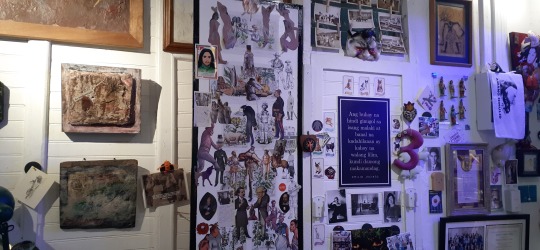


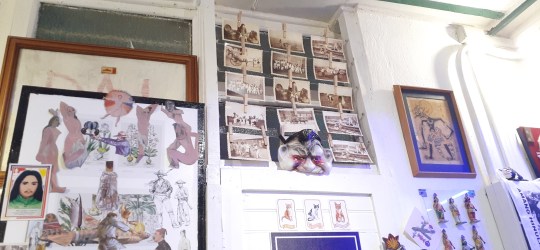

As a place of intellectual discussions and lectures
Recently, Savage Mind launched the Rumdom Series which is a series of lectures and discussion on various topics involving local history. I was able to attend two out of three of the lectures so far. One is a lecture on the Old Streets for Naga which was discussed by Atty. Luis Ruben General and the other one is a lecture on Camineros in Camarines that was discussed by Sir Leo Paulo Imperial. I would leave work early to catch the lecture discussion. I would usually be at the back and blending in a crowd of students and teachers.
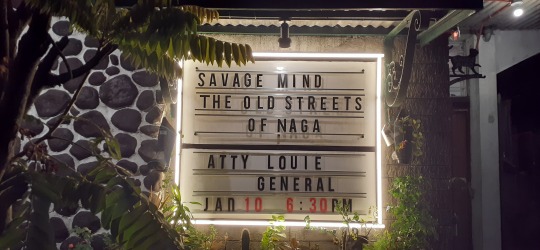
I will never look at the streets of Naga the same way again after attending this discussion of Atty. Luis Ruben General today. It was like if I will be walking around Naga, I will try to identify its old name. From recalling the old names of the streets to introducing some of our local heroes that needs recognition, there were a lot of interesting points on the old streets of Naga.

We keep on naming our streets after our heroes yet, how many of them are originally from Naga or Bicol? Why do we keep on changing the names of our streets through the years? Isn't changing the name of the street is like dishonoring or discrediting the hero it was named after? Why is Naga the only city in the Philippines that doesn't have a street named after an American? What are the present laws/local ordinance that we have that could protect heritage? Those were some.
Also, why is it that there are no monument of the Arejola brothers (Thomas and Ludivico) in Naga who were actually both Nagueños? Though, I know that Ludivico Arejola has one in Minalabac. Since Thomas did not die in the battle but of old age, is that why he didn't get much recognition? Does one have to die for the country to be recognize as a hero or for one to have a monument or a street named after?

I really cannot forget the conclusion for that discussion because I love the conclusion, "Street names are part of history. They also reveal the character of local people as they show the kind of persons we honor and the events they remember."
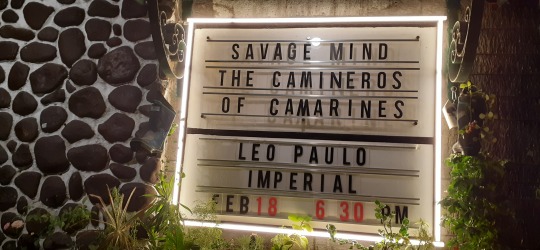
Moreover, I never realized the significance of the road constructions until I heard the discussion of Sir Leo Imperial on the Camineros in Camarines. I guess, we also owe that to Cameron Forbes who’s greatest contribution in our country, the Caminero Project, has led not just for the economic progress but also built connection for better trade. And off course, the first road constructions will not be completed without the Foreman, Capataz and Camineros. Mobility is seldom tackled in historical accounts. It was nice that we get to learn about Transportation History in Bicol Region too.
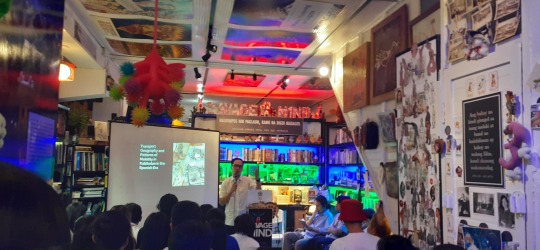
Nietzsche identified three kinds of history: antiquarian, monumental and critical history. I was once again reminded of my Rizal class in college where we discussed it. Where does these fall under? One thing is for sure though, Savage Mind has already made its mark in history for being the first independent bookstore, cultural hub and a place for intellectual discussions and lectures in Naga City. What more can we ask for?

Savage Mind Bookshop is open on Monday-Thursday (3pm-9pm), Friday (2pm-10pm), Saturday (2pm-10pm) and Sunday (1pm-8pm).
#savagemind#independentbookstore#bookshop#bookstore#savagemindartbookcinema#savagemindbookshop#culture#history#art#books#bookworm#nagacity#naga#camsur#camarinessur#travel#tourism#philippines
3 notes
·
View notes
Text
“Underwater America with Peter Potamus” (episode 18: Off the Florida Panhandle in and around Pensacola)

[As this particular episode opens, we can easily imagine plenty of aerial action in and close to Pensacola, Florida and the Miracle Strip region, including the areas around Destin, Ft. Walton Beach and Okaloosa Island, as are the foci therefor]
PETER POTAMUS, narrating with Pensacola Beach in the background: And you thought the Florida Panhandle was hardly worth diving ... at any rate, yours truly and crew have plenty of interesting diving ahead, including (if you can believe it) some interesting spearfishing opportunities made even more so by a rather steep near-shore dropoff in the Gulf of Mexico, whence our diving adventures will be experienced this week.
[Highlights of candid footage taken from the drive out of Grand Lake O’ the Cherokees, site of last week’s dive, towards the Florida Panhandle, fill this space while Peter narrates--]
Somehow, word had gotten out to us after Grand Lake up Oklahoma way that some “especially close acquaintenances” wanted to meet us at some club down Pensacola way ... yep, good old Pensacola, the Cradle of Naval Aviation ... and it almost seemed so cryptic until we reached the night life district of Pensacola Beach [entering this particular bar/restaurant, finding seats and all that], and--wouldn’t you believe it ...no less than the Cattanooga Cats were performing!!
[Here, we can see the feline quartet of Country, Kitty Jo, Groove and Scoots, assisted by Kitty Jo’s pet hound, Teeny Tim, performing on what passed for the stage of this bar--er, more like winding up their set when ...]
KITTY JO, with much enthusiasm: And I understand that we have Peter Potamus and a few of his close friends in the house this evening ... so could we have them come on the stage, please, and give them a great big wonderful Cattanooga Cats welcome?!!
[Which they do, and then some, going into quite the hugging session.]
PETER POTAMUS, picking up the narration: Well, now we knew who was looking for us all along heading over here! And were they surprised to learn where we happened to be doing some underwater filming in these parts ... [switching to backstage “after ths show,” featuring a “make-your-own” grits bar] ... and over plenty of that Southern staple known as hominy grits, you wouldn’t believe the conversation that was flowing! Especially coming from Scoots, the band’s musical jack-of-all-trades, as it were!
SCOOTS, over another spoonful of grits: I have to admit that I’m something of a pretty decent diving cat myself ... even if I learned the art at a “swimmin’ hole” back in the holler where I was growing up, in the midst of a rather warm summer which saw my mother go into nervous breakdown such that Pop asked me out of the house during the day just for her sake ... and I would have to credit one Amy Catline, a regular at the swimmin’ hole, for teaching me some worthwhile things, life in particular, that oh so muggy summer!
[You could just hear the “awwwwwws” throughout.]
COUNTRY, adding his two cents: I do have to acknowledge where we can’t resist the swimmin’ hole experience every now and then between performances ... especially when it’s just an excuse to let things cool off and rest a couple hours while on the road!
GROOVE, ever the poet as much as the band’s drummer: Sometimes, I can’t help but seek,/What lies in the waters underneath! [Chuckles from our crew]
PETER POTAMUS, narrating: And such conversation as that certainly kept as much the Cats as ourselves going until close to sunrise, as if having myself no less than three bowls of the Cattanooga Cats’ own grits with shredded cheese and seasoned salt wasn’t a wonderful occasion enough ... [scene shifting to a dive shop in Pensacola Beach for some ideas] ... by mid-morning of the following day, a local dive shop pointed us in the direction of the scuttled remains of the battleship USS Massachusetts, commissioned in 1899, seeing active duty well until World War I, retired soon after ... and torpedoed in 1921 with an experimental rail-mounted gun while at anchor just offshore of Pensacola, eventually sinking in some 20 feet of water!
[The action shifts underwater close to the USS Massachusetts wreck site, this time with the entire crew diving in, captured as per usual by Squiddly Diddly in his underwater cameraman role ... and not long after, we find many of our crew diving in and around the Massachusetts’ scuttled remnants. We’ll let Peter continue the narration as we find many of the crew close to the hull....]
What’s particularly amazing is that this was one of the first steel-hull vessels in naval service, as opposed to the iron such which dominated from the Civil War on. For its time, something of an achievement, even if it were but one of three Oregon-class battleships from around the Spanish-American War.
BREEZLY BRUIN, narrating over the dive scene: It must have seemed interesting to get in through where the vessel was torpedoed when she was scuttled ... yet entering, you seem to feel a little weird to find this battleship was actually decommissioned beforehand....
MAGILLA GORILLA, also narrating over where he dives through the interior with flashlight in hand: Can you imagine this was actually a working naval battleship in its time, only now to become an interesting dive destination? Yet still, you can’t help but picture the feeling in the pit of your stomach when you get into a sunken vessel such as this ...
[The scene shifts to the outside of a divers’ camp close to Destin, where a modest little campfire can be discerned going against the twilight]
PETER POTAMUS: What further amazed us as a diving party was when no less than Squiddly Diddly brought our attention over supper to another offshore wreck in the area, this time more mysterious: As in that of the San Pablo, a fruit steamer which ran between Central America and the United States for the United Fruit Company’s “Great White Fleet” in the 1930′s until being sunk under mysterious circumstances around 1943. And there were rumours that the vessel was actually Soviet-flagged, but remember that it wasn’t called the “Great White Fleet” for nothing!
WALLY GATOR, lovingly trying for the answer: Was it because white looked rather cooll, don’t you know?
MILDEW WOLF, with added snark: Mary had a tramp steamer, its hull was white as snow--
HOKEY WOLF, perhaps close to the truth: The better to keep the produce cool in the Caribbean heat, I assume?
LIPPY THE LION: Reflecting the tropical sun’s heat, I understand.
PETER POTAMUS: I admit all were pretty close, but Lippy got it correct: United Fruit’s fleet of steamers hauling tropical fruits and vegetables were painted white to better reflect the sunlight of the Caribbean and the Central American regions where these vessels saw service, and keep the produce at ideal temperatures until being offloaded at port--New Orleans more often than not.
[Scene fades into the waters where the wreck of the San Pablo is discerned, as evident by its white hull; as per usual, Peter Potamus leads the intrepid divers over, across, and into parts of the wreck. In one scene, we can see Lippy the Lion “kicking it up” close to the railing near the hull, and in another, we can discern Breezly Bruin and Loopy DeLoop diving through the crows’ nest of the ship, close to the radio room. Loopy’s flashlight can be seen cutting through the murk to find the radio apparatus still intact, even allowing for some 25 years’ accumulation of sea grasses and coral.]
PETER POTAMUS, on a pontoon near the docks on Okaloosa Island: But those wrecks were just the beginning, a taster, if you will, for what lay ahead: Destin, which is but a few miles out on the mainland, takes pride in calling themselves “the World’s Luckiest Fishing Village.” And you can credit its closeness to the 100-Fathom Curve offshore, which, along with its being an interesting dive spot, also welcomes plenty of fish native to the Gulf of Mexico: Not just tuna, amberjack, yellowtail and marlin, but also the likes of vermilion, black, white and red snapper, spanish and king mackrel, grouper, wahoos (whatever they are) and triggerfish. Which can be pretty easy to catch, even with a harpoon gun!
[The scene fades to a near-shore scenario, pointing out safety procedures for harpoon guns, proper use being explained--and reminding all that such need to be pointed away from the body, and when so fishing, must remain underwater. A “pop quiz” on harpoon gun safety can also be discerned, as well as the inevitable pre-dive safety briefing.]
... and so our party sets out on some serious spearfishing adventures in such well-stocked waters as these such as attract the sportfishing crowd galore....
[The inevitable mass dive-in, taking care to ensure that the harpoon guns are sheathed, close to the body and at once ready ... followed by Peter Potamus “himself,” guided by Squiddly Diddly, guding all to some pretty interesting spearfishing waters. We can also discern some spearing action from some randomly-selected diver as he positions his harpoon gun into firing position, being steady about it all the while ... and fires the harpoon gun into some red snapper, taking pains to avoid excess blood loss which could attract sharks. Maybe another member of the troupe could also be seen in harpoon-gun action as well....
[Fade to ...]
PETER POTAMUS, over the grill at a “gulf-to-table” restaurant, with several others joining in: Particularly interesting is that several restaurants out this way allow fishermen, even those fond of spearing, to actually have their catch prepared and served. Myself, I was able to have some grilled grouper and flounder, though I admit the taste takes a little getting used to. Snapper, especially red snapper, can also get to be popular in these parts ... and can you imagine the Three Wolves spearing bluefin tuna, and actually having grilled tuna steaks as well?
At any rate ... we certainly hope your diving experiences are as interesting and as memorable as ours are. And in our next episode, which is somewhere among the springs of Florida ... we’ve got a surprise you won’t want to miss for the likes of yourselves ...
@joey-gatorman @warnerarchive
#fanfic friday#hanna barbera#documentary#scuba#scuba party#transcript#peter potamus#florida panhandle#diving party#pensacola#pensacola beach#cattanooga cats#wreck diving#uss massachusetts#m/v san pablo#okaloosa island#spearfishing#harpoon gun#100 fathom curve#hannabarberaforever
1 note
·
View note
Text
I just wanted to tack onto this that the myth of the impoverished African country stems, at its core, from European colonialism and subsequent decolonization. We in the US are fed the recurring narrative of African countries either being poor, or being politically unstable, or being ravaged by war or ruled by warlords... completely ignoring the fact that Africa is one of the most resource-rich places on Earth. It has a ton of gold, diamonds, oil, etc.
Africa has a long, sad, violent history of being exploited by Western powers, and some of the political instability on the continent is actually very manufactured. America has a track record of exploiting Africa from its inception... it's why the country has a population 13% Black. The slave trade is just the tip of the iceberg, too. And America has a track record of destabilizing foreign governments to protect commercial interests.
It's not just America, it goes back hundreds of years, and includes a lot of the great European empires.
The most populated areas of Africa (Johannesburg, Nairobi, Lagos, Tangiers, etc) are much the same as any other major city. The areas of Africa that do struggle with war and political instability are areas that have been actively exploited by Western interests.
Curious why South Africa has a city called Johannesburg, and why Afrikaans sounds so... European? Because Afrikaans is an African import of the Dutch language when the area was colonized by the Netherlands. Not incidentally, De Beers (a shockingly Dutch name, isn't it?) controls the majority of the global diamond market. Much (arguably most) of Africa speaks French... again, European influence.
And most of the war and political instability in Africa is fallout from American interests.
And a final note, those images you see, the ones showing whole villages in poverty and starving children... ever notice how a) they always ask for donations, b) are very commonly Christian organizations, and c) very often show the same footage for a suspiciously long time in their ad campaigns? Churches - and especially American Evangelical churches - are notorious tax havens. I'm not trying to bash Christianity or charity as a whole, but my point is that US tax laws exempt religious organizations... and this has fostered an entire industry of corporations creating "churches" in order to become tax exempt.
I absolutely do not want to discourage anyone from giving to charity. There most definitely are areas of Africa that do need foreign aid.
But research charity organizations. A lot of charities may only put a few cents to the dollar toward actual charitable activity. A lot of the for-real churches that aren't tax havens leverage things like food, medicine, and clean whatever to erase native religious practices and replace them with European or American brands of Christianity.
But the really big lie here, perpetrated in silent perpetuity, is the propaganda that the people of Africa are lucky to have well-intentioned White people to save them.
This portrayal is systemic, has real consequences, and actually informs US immigration policies, work visa applications, etc.
Someone said "Are you really so stupid to think that Africa has the same technological advances as us? If they did they would probably have clean water and not live in houses made of sticks and mud. Get over yourself and stop being so ignorant."..... Below is a tiny collection of images of the Africa they refuse to show you..




ches

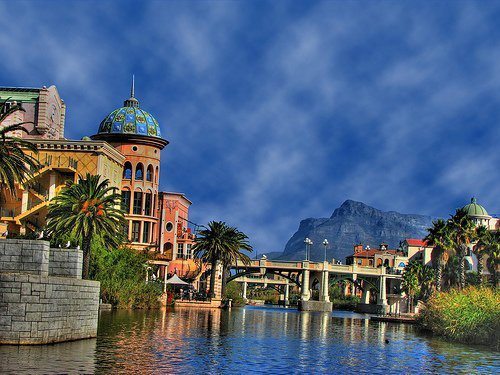


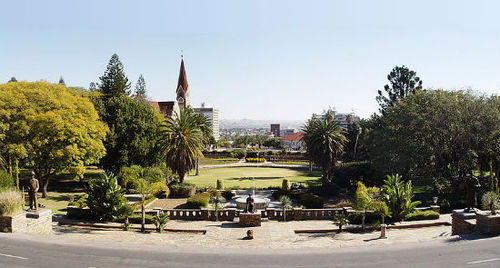

I’m sorry you’ve been made to believe that the whole of Africa is poor, I really am..
787K notes
·
View notes
Text
I’ve been seeing this question floating around and I personally felt it would be important to address...
Should Padmé Amidala have been cast as an Asian woman for the Prequels Trilogy?

The important thing to think of when determining the answer to this question is that it is a matter that is more than just a preferential choice. Of course, the answer and the question are now hypothetical since the movie is already a thing, but it’s still worthy of discussion.
Also, this isn’t necessarily a critique on Natalie Portman herself as much as it is about questioning the creative decisions behind her character by the Casting Director -- Robin Gurland, the Concept Artist -- Iain McCaig, and the Costume Designer -- Trisha Briggar, specifically for The Phantom Menace. And let’s not forget the man at the helm -- George Lucas.
Now, the main reason why I feel it is relevant to bring these people to light is because it is very clear that they all share one common trait -- they are all white. A relevant fact because, however unintentional in the hiring process, having a room full of white people creates a lack of perspective which can forward careless work practices involving things they are not familiar with. By things, I mean specifically cultures they are not intimately familiar with.
You have people who find themselves trying to create the scifi feel of the foreign and the unfamiliar -- they see cultures that are fascinating and beautiful and feel inspired. But that’s when things get dicey. After all, if a white person is not actively looking for it (as it is not an active part of their life to worry about), how will they understand what can be potentially disrespectful or not for the poc cultures they borrow elements from?
Which brings us to remember that...
Cultural Appropriation: Historical Context is Important
One thing that can determine whether or not cultural appropriation harmful is when the people borrowing from the other culture possesses historical baggage in which they have a history of taking from those people to begin with.
This is why white people wearing Native American headdresses is considered immediately harmful. Even without the added context of the fact that the headdresses are being misused and disrespected, the fact is that white people have had past transgressions stealing from Native Americans with consequences that still exist today.
So, what is the historical context involving Padmé Amidala and her wardrobe?
I’ll get there, but let me explain a few things first involving the development of her noteworthy red dress ensembles when we first see her (ok, Sabé lol) on the throne and later in the movie.
When looking at FORCE OF FASHION: QUEEN AMIDALA’S THRONE ROOM ENSEMBLE, an article that is posted on the Star Wars official site, you see that they talk about the Behind the Scenes work on Amidala’s main wardrobe in TPM and the inspirations revolving around that.
[The] design borrows the striking reds of traditional Chinese regality and mixes it with the complex, beautiful golden designs of Korean and Mongolian wedding dresses...”
“[the] massive headdress strongly recalls that of a traditional Mongolian wedding...“
“Here in this galaxy, the white make-up and red dotted accents on Amidala’s cheeks resemble the Yeonjigonji, a style of make-up used by brides in traditional Korean weddings...”
The issue here isn’t that they take inspiration from multiple cultures as much as they pick and choose, mix and match certain aspects of wedding wear that is worn from those cultures and put them all into one style of dress to emulate a certain aesthetic.
Intent and the tradition become changed and disregarded for the fiction that is played in the story. The context is lost and it is then displayed towards an audience where many do not know the original origins. It all sums up to what they intend: to portray an alien culture.
To move forward creatively in this way -- taking bits and pieces of a culture mainly for the aesthetic while disregarding the meaning and symbolism -- is to assume that these cultures have interchangeable traits that can be taken and altered at whim. And that’s simply not the case. Cultures are not to be treated the same as arranging a flower bouquet. Especially if it comes from cultures that belongs to people who are still alive and thriving, to which their culture is an active part of their livelihood and identities.
Which brings me to talk about....
Orientalism, Why it Sucks, and How it Affects Us Now
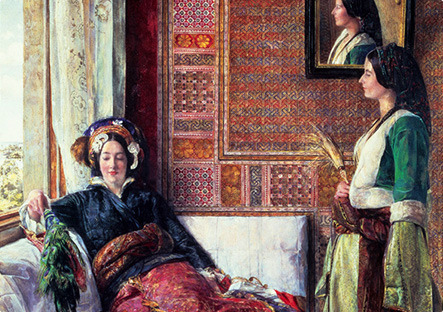
It is during the 19th century that there was a spark of interest and fascination with the the far East for the British Empire. With the modern technologies that allowed for travel across oceans, it made things steadily easier for foreigners to meet and explore new cultures and people. It was a time of learning built on curiosity and would escalate and devolve when findings were taken back to British civilization. Stereotypes and a disdain for foreigners would fester among the white populace despite them hypocritically finding fascination in their art.
It should also be remembered that during this time, the West had already been introducing “western practices” to other cultures, which included drugs and weapons. The one specific thing I’ll reference is the “Opium Trade” being started in China and how that thoroughly crippled the nation -- causing millions of addicts but also a wealth of trade/commerce in which Britain thoroughly benefited from.
So, on one hand, you have the white people taking artifacts and treasures back to their land for the aesthetic. On the other hand, we have those same white people ruining the people they are stealing from and taking advantage of their misery (often caused by said Imperialistic white people) for money.
And all of the art of these people from multiple cultures: Middle Eastern, Asian and North African would be put under the giant umbrella to be referred to as “Orientalism” that would inspire a time of thievery, gaudy misunderstood imitations, and an even worse mistreatment of the people of those cultures.
To them, these “people of the Orient” did not have any valuable distinction other than the fact that their works were foreign, fascinating and beautiful.
It didn’t matter to them that these cultures existed on their own and possessed a long developed history that determined who they were as people. To the colonizers and thieves, they were all the same -- to be stolen and furnished in homes as trophies.
They picked which assets would be considered valuable about these cultures by taking these beautiful culturally important things out of context.
And this, is the historical baggage that I consider when I look at the cultural appropriation that is Padmé Amidala’s regalia and the fact that white people were behind the conception and designs. It’s not a matter of the negative cultural appropriation being intentional or not, but rather, from their situational ignorance, they acted unknowingly and created something potentially offensive to those of Asian descent.
They took beautiful features, but left behind the significance and cultural symbolism. They have unintentionally removed the Asian people from the designs despite it originating from them.
It’s one thing to be inspired, but a creator needs to understand that when you are inspired by any culture, you have to bring forward the people as well.

A good example of this would be the Avatar: The Last Airbender series and how they were inspired by multiple South and East Asian cultures but did not remove the Asian people from the story at all. They also kept all the clothing designs faithful to what they based off of (no mixing and matching certain aspects into one clothing) and kept the context for wearing them proper (ie. they did not design regal wear based on wedding attire as though it were interchangeable).
But does this mean that we hate Padmé and everything and everyone involved with her design?
Not necessarily, but at the same time we shouldn’t excuse it.
When it comes down to it, it is always important to acknowledge what can be done better to improve in future works. Action needs to be taken but...
Remember that when problems are being pointed out about something you like, no one is telling you not to like it anymore.
Rather, it is important to discuss all creative media, old and new, and work towards actively thinking on how they can be improved. For example, it is these kinds of discussions and acknowledgements that have brought the majority to accept that racist caricatures like Mr. Yunioshi from Breakfast at Tiffany’s are unacceptable in current modern media.
So, the question isn’t just “Should Padmé Amidala have been cast as an Asian woman?” Unfortunately, though we know that it would have been definitely more respectful considering the thoughts behind her costume, there still lies the issue of white creators being in charge of the costuming and design of Naboo and approaching it in a way in which did not actively involve actual Asian creators in their development process.
So, consider asking: “What should we do for similar characters like Padmé in the future?” What should we do when a character’s identity is based on an Asian culture for aesthetic?
What should we do to make sure future creators and developers will take more careful measures to be respectful in their portrayals of new fictional creations?
How does a creator make something original and exciting without ostracizing what it is inspired by in real life?
If you got this far, thank you for reading. This has always been one of those things I’ve had strong feelings about. I don’t normally write essays about the Clone Wars or Star Wars, but this was just one of those moments where I felt I couldn’t ignore the discourse. As always, our blog is open for discussion and questions. Going to tag @diversity-instarwars, you are welcome to add any thoughts you may have on the matter.
#annnnndd this is probably my first legit essay#idk man i have been hearing a lot of things regarding the cultural appropriation thing#and it bothers me that people downplay it and act like it's not a big deal#like...of course it's a big deal#media affects how the public perceives the world#it is frankly kind of disrespectful for them to take other cultures and create a new alien culture with it#esp during a time when a majority of the people who did not belong to those cultures#actually did not immediately recognize what the dresses were inspired by#like...consider the fact that if you are making a movie with a reference to an older movie#if no one knew that movie you're referencing from the emotional fulfillment of that is kind of lackluster right?#so...like...i think it totally would have been better if Star Wars followed up by introducing people of those cultures in side segments#to explain more about their culture#like....ACTUALLY bring Korean and Chinese and Mongolian people to TALK about their culture#instead you have white people forwarding something that does not belong to them#anyway...thanks for listening#it's been real yall#Padme Amidala#sw prequels#star wars#the clone wars#clone wars#star wars the clone wars#star wars clone wars#sw meta#long post
494 notes
·
View notes
Text
In Defense of William Johnson
Government =/= Templars. The Templars wants to replace governments. They use them but isn't fighting their battles(that's all about themselves and not humanity). The government put the land on sale, told them to leave and the Confederacy(CSA or C.A) gave their consent. It's open to be purchased by any wanting colonist and William intended to buy it. The natives would be driven out unless a buyer doesn't throw them out. If it isn't sold(like it ended in game), then they would be forced out by the government. It's not about morals, it's about how they worked back then and William knowing how the system works(unlike the natives) wanted to prevent them from being forced out. He was regardless how you twist it trying to save them. You do know there was an increase in slaver after the AR and not long after the Northwest Indian(government vs natives) happened? Kanen'tó:kon: "Men came, claiming we had to leave. They said that the land was being sold and that the Confederacy had consented. We sent an envoy, but they would not listen." http://assassinscreed.wikia.com/wiki...nson%27s_Trail Kanen'tó:kon: Ratonhnhaké:ton! Ratonhnhaké:ton! Connor: Kanen'tó:kon? Why are you here? Has something happened? Kanen'tó:kon: William Johnson has returned - with all the money required to buy our land. He meets with the elders as we speak. I have begged them to resist. But I fear he shall have his way unless you intervene. Connor: How is this possible? We destroyed the tea. Achilles: The Templars are nothing if not resourceful. You should have heeded my warning. Johnson: "Ah, no. What have you done?" Connor: "Ensured an end to your schemes. You sought to claim these lands for the Templars..." Johnson: "Aye. That we might PROTECT them! Do you think that good King George lies awake at night hoping that no harm comes to his native subjects? Or that the people of the city care one whit about them? Oh, sure, the colonists are happy to trade when they need food or shelter or a bit of extra padding for their armies. But when the walls of the city constrict - when there's crops that need soil - when there's... when there's no enemy to fight - we'll see how kind the people are then." Connor: The colonists have no quarrel with the Iroquois. Johnson: Not yet. But they will. 'Tis the way of the world. In time, they'll turn. I... I could have stopped it. I could have saved you all... Connor: You speak of salvation, but you were killing them. Johnson: Aye. Because they would not listen! And so, it seems, neither will you. Connor: May the Faceless One grant you the peace you claimed to seek. http://assassinscreed.wikia.com/wiki...e_Negotiations Haytham: And what's this? George: Private correspondence! Haytham: Of course it is. Would you like to know what it says, Connor? It seems your good friend here has just ordered an attack on your village. Although attack might be putting it mildly. Tell him, Commander. George: We've been receiving reports of allied natives working with the British. I've asked my men to put a stop to it. Haytham: By burning their villages, and salting the land. By calling for their extermination, according to this letter. Not the first time either. Tell him what you did fourteen years ago. Connor warning Washington and Haytham to not interfere George: That was another time. The Seven Years' War. Haytham: And so now you see what happens to this "great man" when under duress. He makes excuses, displaces blame. Does a great many things, in fact - except take responsibility. Clan Mother: Ratonhnhaké:ton! You have returned! But why? I thought you would be with that other man. Connor: What other man? Clan Mother telling Connor about Charles Lee's involvement Clan Mother: Boiling Water. The one called Charles Lee. He took Kanen'tó:kon and a few others with him. Connor: What? Where have they gone? Clan Mother: To push back those who would take our land. Connor: No. This is wrong... Clan mother: Why are you troubled? Is this not what you wanted? For us to take a stand? Connor: I... I have to go. I need to stop them. Connor: Peace, Kanen'tó:kon! Kanen'tó:kon: Ratonhnhaké:ton. Come to kill me yourself? Connor: What?! Kanen'tó:kon: Charles Lee told me everything. The Patriots seek to destroy us. And you would aid them. Connor: That man is a liar! Kanen'tó:kon: He said you had been corrupted. That you would try to deceive. But here they are on our doorstep. What say you to that? http://assassinscreed.wikia.com/wiki/Broken_Trust Another point proving William is right is when Haytham reveals who burned his village and it was happening again. Washington had no problem massacring them despite being a freedom fighter and Connor being his ally. And with none owning the land during the war Washington could attack it without being stopped by a colonist. That colonist could have been William but he's dead. He could have prevent his tribe from siding with the British and told Washington he's trespassing his land to wage war on innocent natives trying to make a living. So obviously they are now forced to fight back and Connor continues supports the Patriots even after Washington betrayed him and attempted to "burning their villages, and salting the land. By calling for their extermination, according to this letter. Not the first time either." That is evidence enough they didn't fight for all people and equality but Connor's naively can be shocking at times. Even Haytham was surprised by how naive he was when they meet and he came with his accusations. Washington was going to destroy them and Charles knowing this warned them, gave them the opportunity to defend themselves and allow the British to aid them like they did in Johnson's time before he tried to purchase the land. Charles was telling the truth regarding the Patriots and William was right about them turning on the natives, like they always end up doing. Traveler: If you're hungry, I've extra. Connor: No thank you... Where is everyone? Traveler: Gone west. Been a while since they left. Seems some fellow from New York was granted the land by congress. Connor: What? Traveler: Seein' it happen more and more. Government SAYS they don't take land that's already owned, but, uh... Connor: How could this have happened? Traveler: We're on our own now. No more Merry English parts and labor. Which means we gotta go at it ourselves. Gotta pay for it too. Sellin' land is quick and easy and not quite so nasty as taxes. And since some say they're what started the whole war, ain't no rush to bring 'em back. Clever men, these new leaders of ours. They know not to push it just yet. Too soon for taxes. Too... British. http://assassinscreed.wikia.com/wiki...séton_(memory) So the Government(with the consent of the Confederacy) put the land on sale for anyone to buy forcing the natives out since they don't take land they already own(their words btw). So William Johnson knowing this tried to buy it without harming anyone but someone killed his workers, guards before attacking his two ships containing tea he was selling to buy the land(economy 101: he properly has far more than two ships so that damage isn't that huge(except for every life lost)). Now since Templar is nothing if not resourceful he will be able to recover from the losses and setbacks but is forced due to recent events to negotiate. The natives not knowing the system or that they'd get forced out by the Confederacy accuses him of taking the land when he is actually the only one we know of that tries to let them keep their lands. So he could protect if from the king who does't care or the people of the city who considers it bad to be a native. And when a city of people like that expands it will force them out, it's the way of the world. So he gets killed by Connor during his negotiates when William got desperate, threatened them and killed some... ...Now the American Revolution is ended and he can live happy ever after with his tribe but wait a minute. Since William didn't own the land and it was given to a fellow in New York by Congress. Why didn't Connor's "allies" step in and say it is owned the natives? Because they didn't fight for the natives. Some are slave owners or has massacred natives before, they don't care and was using him all the time. Connor being naive believed it was a fight for all, a place where all could be equal and live side by side. He finds out they traveled west, no more Merry English parts or labor for the people living in the frontiers. They are left to survive on their own. https://en.m.wikipedia.org/wiki/Northwest_Indian_War "The Northwest Indian War (1785–1795), also known as Little Turtle's War and by other names, was a war between the United States and a confederation of numerous Native tribes, with minor support from the British, for control of the Northwest Territory. It followed centuries of conflict over this territory, first among Native American tribes, and then with the added shifting alliances among the tribes and the European powers: France, Great Britain, and their colonials. Great Britain ceded to the U.S. "control" of the Northwest Territory, which was occupied by numerous Native American tribes. Despite the treaty, the British kept forts and policies there that supported the Natives in the Northwest Territories. President George Washington directed the United States Army to halt the hostilities between the Natives and settlers and enforce U.S. sovereignty over the territory. With Harmar Campaign (1790) and St. Clair's Defeat (1791) being major defeats. After St. Clair's disaster, Washington ordered Revolutionary War hero General "Mad" Anthony Wayne to organize and train a proper fighting force. Wayne took command of the new Legion of the United States late in 1793. He led his men to a decisive victory at the Battle of Fallen Timbers in 1794. The defeated Native tribes were forced to cede extensive territory, including much of present-day Ohio, in the Treaty of Greenville in 1795. https://en.m.wikipedia.org/wiki/Northwest_Indian_War The natives traveled west and if ended with a war between the natives with change of support including the British who Connor "liberated"(resulted in no more British parts or labor to those living in the frontier) the land from and "saved" his tribe. So William was right, they did turn the natives and Washington(his ally) who also was the one who killed his mother and is responsible for the attack on his village. The guy fully aware of him fighting for his people turns his back on him and fights the natives in the west(with failure) until he puts Anthony Wayne in charge of dealing with them so they can enforce U.S sovereignty over the territory they moved to after being forced out because the Government don't take land they already own, resulting in a fellow from New York owning it. Regarding Stanwix, we all know what land the Colonial Templars will dig up. The Grand Temple. Then there is also the fact that it will also be digged up by the fellow from New York who owns it since William got killed. Had William owned it they would be living on their land. http://assassinscreed.wikia.com/wiki...ian_casualties In his time, Connor ensured the abandonment of his tribe's native lands and the onset of the American Revolutionary War by eliminating William Johnson and John Pitcairn in pursuit of freedom, to his eventual regret.
1 note
·
View note
Text
Global Cactus Traffickers Are Cleaning Out the Deserts
A recent raid in Italy involving rare Chilean species highlights the growing scale of a black market in the thorny plants.
— By Rachel Nuwer | May 20, 2021 | The New York Times
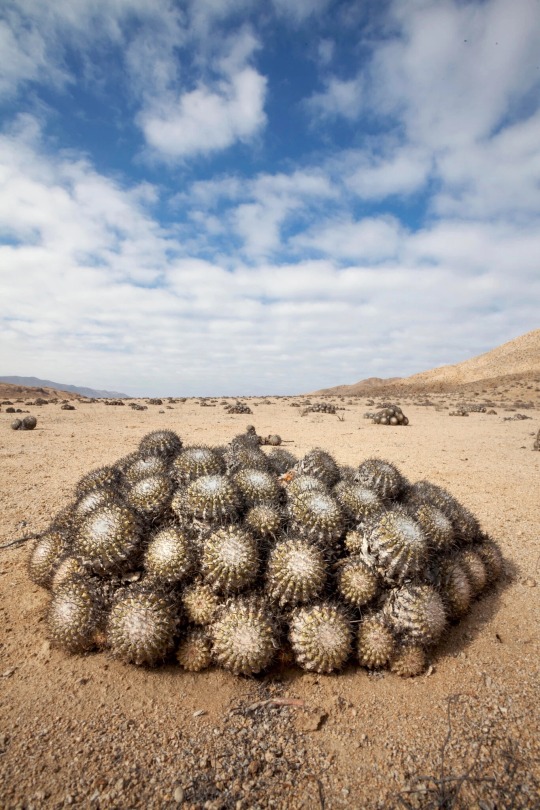
Copiapoa cinerascens, a cactus, in Pan de Azúcar National Park in the Atacama Desert of Chile. Credit...Gretchen Mattison/Alamy
Andrea Cattabriga has seen a lot of cactuses where they didn’t belong. But he’d never seen anything like Operation Atacama, a bust carried out last year in Italy. A cactus expert and president of the Association for Biodiversity and Conservation, Mr. Cattabriga often helps the police identify the odd specimen seized from tourists or intercepted in the post.
This time, however, Mr. Cattabriga was confronted by a stunning display: more than 1,000 of some of the world’s rarest cactuses, valued at over $1.2 million on the black market.
Almost all of the protected plants had come from Chile, which does not legally export them, and some were well over a century old. The operation — which occurred in February 2020, but is being made public now because of the cactuses’ recent return to Chile — was most likely the biggest international cactus seizure in nearly three decades. It also highlights how much money traffickers may be earning from the trade.
Seeing the collected cactuses brought a profound sadness to Mr. Cattabriga.
“Here is an organism that has evolved over millions of years to be able to survive in the harshest conditions you can find on the planet, but that finishes its life in this way — just as an object to be sold,” he said.
As with the market for tiger bones, ivory, pangolin scales and rhino horn, a flourishing illegal global trade exists for plants. “Just about every plant you can probably think of is trafficked in some way,” said Eric Jumper, a special agent with the Fish and Wildlife Service. Cactuses and other succulents are among the most sought after, along with orchids and, increasingly, carnivorous species.
Trafficking can take a serious toll. Over 30 percent of the world’s nearly 1,500 cactus species are threatened with extinction. Unscrupulous collection is the primary driver of that decline, affecting almost half of imperiled species. Yet this realm of illegal trade is typically overlooked, a prime example of “plant blindness,” or the human tendency to broadly ignore this important branch on the tree of life.
“The basic functioning of the planet would effectively grind to a halt without plants, but people care more about animals,” said Jared Margulies, a geographer at the University of Alabama who studies plant trafficking. “A lot of plant species are not receiving the amount of attention they would be if they had eyes and faces.”
Yet the size of Operation Atacama could be a notable exception. It is also the largest known example of cactuses stolen from the wild being repatriated for reintroduction into their native habitat.
Experts also hope the case can be a turning point for how countries, collectors, conservationists and the industry deal with the thorny issue of international cactus trafficking.
“Society as a whole can no longer continue to have a naïve view of this problem,” said Pablo Guerrero, a botanist at the University of Concepción in Chile.
Passion For Rarity

Italian investigators with Operation Atacama prepared a specimen of Copiapoa solaris for shipment back to Chile from a greenhouse in Milan, Italy. Credit...Andrea Cattabriga
Cactuses and other succulents are hot business today. They have become the darlings of social media, promoted by indoor plant influencers for their outlandish looks and minimal care requirements. The pandemic only increased their popularity, with shops struggling to keep some species in stock.
The average hipster’s cactus collection will include only common species propagated in nurseries. But for some specialist collectors — who tend to be middle-aged or older men — the hobby is much more serious.
“A lot of what drives the interest and passion for these plants is their uniqueness and rarity,” said Bárbara Goettsch, co-chair of the Cactus and Succulent Plant Specialist Group at the International Union for Conservation of Nature.
Many cactus species are highly localized, found, for example, only on certain steep limestone cliffs in Mexico, or a single sandy patch of less than one square mile on Peru’s coast. They also tend to be extremely slow-growing. Larger specimens, which are more highly sought after, can be decades or even hundreds of years old. These features make cactuses particularly sensitive to over-harvesting, but also particularly attractive to collectors interested in exclusivity.
Purchasing rare species legally, however, can be difficult to impossible. All cactuses and many other types of succulents require permits to be traded internationally, if they can be legally traded at all. Most countries also prohibit collection of some or all of these species from the wild, including the United States.
“For all cactuses, you cannot collect them off public land, period,” Mr. Jumper said. “Catching people in the field actually collecting cactuses takes quite a bit of luck, though, because they collect in some vast areas.”
Once cactuses are poached from the wild, illicit trade often happens in the open. High-end plant shops in Japan display protected, wild-harvested species, while sellers around the world advertise them on eBay, Instagram, Etsy and Facebook. Online ads are often accompanied by disclaimers that the cactuses do not come with necessary permits for legal trade, and poachers sometimes livestream videos from the field, asking customers which plants they want. Traffickers are rarely caught or prosecuted. While American, British, European and Japanese collectors have traditionally driven the illegal trade, more recently, interest has also spread to China, Korea and Thailand.
Although no estimates exist for the scope of the illegal cactus trade, many experts believe it is increasing. “It was a much smaller issue 20 years ago, but now, it is major,” said Jeff Pavlat, president of the Cactus and Succulent Society of America. “Entire populations are being stripped.”
A Poacher’s Playbook

Copiapoa Cinerea. Credit...Andrea Cattabriga
In February 2020, the Italian police, responding to a tip, visited the home of Andrea Piombetti, a well-known cactus collector and seller in Senigallia, a town on the Adriatic coast. In a makeshift greenhouse, officers discovered around 1,000 protected Chilean Copiapoa and Eriosyce species, ranging from the size of a baseball to a beach ball. Police officers seized the plants, along with Mr. Piombetti’s cellphone and passport.
It was not the first time Mr. Piombetti, who did not respond to interview requests, and who is now awaiting trial, had been accused of cactus trafficking. The police also seized a shipment of 600 Chilean cactuses from him in 2013. But the case was never prosecuted because of bureaucratic delays, and the statute of limitations passed.
“Many environmental crimes in Italy have this problem — they can’t be punished after four or five years,” said Lt. Col. Simone Cecchini, chief of the wildlife division of the local police department, who led the 2013 and 2020 investigations. “This time, our prosecutor said we’ll try to be very fast, because he wants to avoid what happened in 2013.”
Mr. Piombetti has not yet entered a plea in court.
Mr. Cattabriga and other experts carried out a number of analytical tests to confirm that the plants had not been homegrown, but instead were collected from the wild in Chile’s Atacama Desert. Mr. Cecchini and his colleagues found that Mr. Piombetti had made seven trips to Chile, most recently in December 2019, where they say he poached the cactuses in the Atacama Desert, near Pan de Azúcar National Park.
After collecting the cactuses, Mr. Cecchini’s investigation revealed that Mr. Piombetti allegedly mailed the plants to addresses in Greece and Romania, where international customs are more lax than in Italy. Because of their hardiness, cactuses can survive long journeys by post without soil, water or light.
Mr. Cecchini found many records of illegal cactus sales in Mr. Piombetti’s phone, including receipts from a Japanese company that seemed to place large monthly orders. Based on the prices quoted by text, the police calculated that the seized cactuses were worth over one million euros.
“We need bigger penalties in Italy for this type of environmental crime,” Mr. Cecchini said.
A First-of-its-kind Homecoming

A specimen of Capiapoa conglomerata recovered by Operation Atacama. Credit...Andrea Cattabriga
After the seizure, Mr. Cattabriga arranged for the plants, many of which were in very poor health, to be transferred to the Città Studi Botanical Garden of Milan for temporary care. As the investigation progressed, the question of what to do with them became more urgent.
Cactuses confiscated by the Italian authorities are normally destroyed or, if they are rare species, sent to botanical gardens. But with Operation Atacama, “it was very different,” Mr. Cattabriga said. The number of cactuses was so large, and some were critically endangered species found in areas of Chile spanning just a few square miles with very specialized needs. Keeping the cactuses at the garden was a likely death sentence.
At first, there was discussion of sending the plants to other botanical gardens in Italy and broader Europe. But Mr. Cattabriga, Mr. Cecchini and Dr. Guerrero were adamant they be returned to Chile for both conservation and symbolic purposes.
Working with Dr. Goettsch and several others, they spent much of 2020 navigating Italian, Chilean and international bureaucracy to secure permission to send the plants home. “It’s the first time this has happened, so no one was really clear on how to do this,” Dr. Guerrero said.
The authorities finally agreed to the transfer in late 2020. But neither Chile nor Italy would pay the approximately $3,600 shipping cost.
Dr. Goettsch managed to secure about three-quarters of the funds from the International Union for Conservation of Nature, and the botanical garden in Milan pitched in as well. The rest was provided by Liz Vayda, owner of B. Willow, a plant shop in Baltimore that regularly donates to environmental groups.
Finally, in late April, 844 cactuses made the return journey to Chile. Around 100 others had died, and 84 stayed in Milan for study.
Mr. Cattabriga has been making daily video calls to try to ensure the plants are being properly cared for while they are in quarantine. According to Bernardo Martínez Aguilera, head of the forest inspection department at Chile’s National Forest Corporation, the final goal “is that the majority of these individuals return to their natural environment, which they never should have left.”
Carrots and Sticks

Cacti of the Copiapoa genus in Pan de Azúcar National Park. Credit...Erlantz Pérez Rodriguez/Alamy
Operation Atacama is by far the biggest bust in recent history, but there are other signs that law enforcement is beginning to take note of cactuses. Six men were sentenced to a number of penalties after recent federal convictions involving a cactus trafficking ring that poached thousands of living rocks in southwest Texas for smuggling to Europe and Asia. Additional cactus-related prosecutions have taken place in California and Arizona.
But while stronger law enforcement is welcome, a variety of experts believe prohibition, on its own, will not stop trafficking. Instead, they favor meeting demand through sustainably managed collection of seeds or cuttings of wild plants, which could be used for artificial propagation by certified greenhouses.
Sales of these legally sourced plants could help offset illegal trade. Preferably, the proceeds would go directly to communities living alongside the species, the experts say, creating incentives to protect them. The cactus and succulent trade is “big business, but the majority of that money is not centered in countries of origin,” Dr. Margulies said. “I think there should be a push to engage in this more from a social justice lens.”
Many countries’ domestic legislation prohibits these types of activities, however, as do strict international trade laws and bureaucracy. The result, Mr. Cattabriga said, is a system that “discourages the reproduction of rare plants in captivity, and has the side effect of exacerbating the illicit trade.”
Dr. Guerrero hopes that Operation Atacama will ignite discussions of how to reform legislation to make it more amenable to solutions.
In the meantime, some plant enthusiasts are going out of their way to change cactus collecting culture. Ms. Vayda at B. Willow, for example, is in conversation with the International Union for Conservation of Nature about potentially establishing houseplant industry standards for certifying that greenhouses use legally sourced plants, similar to organic or fair-trade food labels. “Right now, I have to specifically ask a grower, ‘Where do your plants from?’” she said.
The Cactus and Succulent Society of America is trying to steer members away from the temptation of poached plants through educational talks, articles it publishes and other means. The society also banned growers from entering specimens into specialty shows and competitions that members would have no way of legally acquiring today.
“You can’t have a Copiapoa collected in Chile in the 1970s get the ribbon, and then tell members, ‘No, you can’t have that plant, you have to start from seed and in 200 years you can have it,’” Mr. Pavlat said. “We have to reset what people’s goals and expectations are.”
0 notes
Text
Concerning Capitalism
What should the next generation not have to tolerate?
Capitalism
What passes for capitalism today has nothing to do with free markets or equitable exchanges. Behind the thin veneer of capitalist vindications exist ulterior motives which mean to extract work and properties from those who are already impoverished. Making matters worse is the fact that capitalism is enforced with violence, and this seems to be an unquestionable tacit; ask your leaders if they think it is okay to hurt people for money. They either have to eschew the question, or admit that according to capitalism, it is. To say that it is not okay to enforce capitalism with violence is to admonish soldiers, police officers, and other men and women at arms; even the rule of armed teachers and compulsory schools with armed guards; all of whom may be considered potential mercenaries for receiving payments in a line of duty that calls for the use violence. The fact of the matter is that persons at arms are paid to make war. Capitalism is the de facto monetary paradigm of the world because capitalists are quick to use violence and censorship against those who would implement other paradigms such as planned economies.
Arguments that capitalism is benign are undermined by the fact that money and its corresponding ledgers are themselves a tax on a purportedly free market. The treasuries which print such currencies insist that monies are market shares. When avarice undermines codes of honor, which is common, those market shares might as well be honor surrogate. Money itself is a tax that does more than undermine other currencies in the name of a treasury, it undermines conventions of honor; a simple example of this is that wealthy persons do not have to behave as honorably as poor ones, especially under scrutiny from the law. Consider that poverty itself is criminalized in the form of ordinances that punish persons without sufficient capital; persons who are unable to take shelter from the street, or unable to keep themselves clean because their way of life has been undermined by capitalism. In capitalist terms, they are poor. A less obvious example of the way money undermines honor is how capital incentives and enables the wealthiest persons and corporations to practice sedition, making democracy impossible.
Everybody Wants Their Dime
Most persons go along with capitalism because it is marketed at them as being a modest solution to their needs. Capitalism has a long history of depriving entire populations of their work and property, especially along national lines: denial of a fair labor rate, trade embargoes, the Immigrant Labor Complex, Reaganomics, the Japanese Internment Camps, the Holocaust, American Slavery, the Native American Genocides, the French Revolution; even the Napoleonic Wars were vindicated as imperial expansionism: an idea that says a nation cannot increase its wealth without pillaging another. Though empirically incorrect, imperial expansionism has been a popular idea throughout history. The reason capitalists waged genocide upon indigenous peoples in the first place is because indigenous peoples were able to resist capitalism; they were not dependent on the money and they were persecuted for it. Capitalism also polarizes entire populations by casting individuals as rich or poor, catalyzing the detrimental us versus them mentality.
The history of capitalism informs us of the human condition: a nation in crisis will resort to unmitigated violence, then codify that violence with bigotry before setting out to oppress other nations. The objective of capitalist regime is to make people so oppressed that they can do nothing but labor. That is the capitalism of a fascist regime, it is an old scandal known as Our Way or the Highway; at least the people of the world know about that one by now: we know that the highway is no kind of life. We also know that the way of a national assembly is the French Revolution ad nausea.
A Seditious Regime
The problem with capitalism is that it is based on the sedition of personal property. Do not neglect your stakes. When property is derelict it becomes a possession as opposed to a property. A property is something that is in regular use, and therefore maintained by its proprietor. A possession is simply something someone claims ownership of; for example, a home owner owns property, an artist may possess the moon. Owners are responsible for securing and maintaining their properties. The state is not and should not be responsible for securing and maintaining properties for owners, yet the wealthiest capitalists are using money and its influence to coerce the state into securing property for them. An example of flagrant sedition is how the military is used to secure oil for the private sector, reducing soldiers to the role of mercenaries and turning the government into a bank for the fiscal elite. In theory, property secured by the government becomes federal property, which is subject to citizens and a democratic process. In practice, corporations sell you back properties that your tax dollars paid for in the first place, tax dollars that fund the seizure of oil under the premise of war. Big Oil is using the state to sell you gasoline and petroleum products that you already paid for, (atleast in part if you’ve paid your taxes.) Have some respect for the professional soldier. Admonish the state. End state sanctioned sedition.
Thwart the detriments of capitalism by exercising rites and protesting government sanctioned sedition. You have inherent rites. Every human being has the inherent rite(s) to: feed themselves and others by furnishing themselves and others with food; shelter themselves and others; access clean water in order to practice sanitation, hydration, non commercial food preparation, non commercial gardening, and non commercial pet stewardship; traverse patent way, including but not limited to roads, walks, and water ways; communicate; access and read publications of moderate bias maintained by state archive; self medicate; receive unobstructed care; and the means to exercise these rites free from the obstruction of possession.
Another way to resist capitalism is to return to intrinsic values by appreciating commodities for what they are. The chicanery used to tax industries today can be avoided with modest language and clearly established expectations. Ask not what you can do for your country, ask what you can do for your neighbors. Exercise your inherent rites; they are of mutual benefit to the community.
Worthy complaints are expressed whenever the state makes insurances and certifications mandatory. In the case of mandatory insurance, the state has been burdened with compensating the people for the bad behavior of individuals, resulting in the taxation of entire groups. If drivers always took responsibility for auto collisions there would be no need for mandatory insurance; because of hit & run collisions, drivers are taxed with mandatory insurance. The prevalence of socialized capital, especially in the form of mandatory certification and insurances, is indicative of societal breakdown. There are some things people were not meant to rely on systems for, nor should any system supplant community.
Add Populism
How does a capitalist regime stay ahead in an unstable society where anyone can commit atrocities thanks to the ubiquitous presence of arms? By being dismissive of poverty and taxing those who are wealthy enough to redistribute money; the regime stays ahead by not bothering with anyone who is poor. Whenever taxes are withheld from your paycheck, that is your employer holding onto your money instead of you. Why do employers take this money from their workers? Employers are incentivized to rip off their own workers in the name of taxation because the state cannot afford to directly tax workers who are so poor that they would resist. Sending auditors after the working poor would lead to class conflict; there would be resistance. Instead, the state provides incentive for business owners to collect taxes for them. Business owners deduct money from their workers' paychecks and set it aside for themselves. The arrangement works out well for business owners until the state sends an auditor to collect. The state exploits greed to single out business owners, and then the state audits business owners. Because business owners take the bait of participating in state sanctioned sedition, everyone gets taxed. Theoretically, a business owner could claim fair labor and collect zero taxes from their workers, formally circumventing the taxation of their employees; there isn’t a single business owner who would do that because capitalists have everyone convinced that business owners would be leaving money on the table: in the form of wages that were supposed to go to workers. Populist greed.
Your employers are greedy persons who treat their workers like utilities, and let themselves be coerced into practicing sedition on behalf of the state. As a laborer, you’re supposed to be paid a living wage for fair labor; that means you can live off of your income and it is free from taxes. That your employer is allowed, or perhaps authorized, by the regime to debit your paycheck is literally a form of sedition. What is wrong with your employer collecting taxes from your paycheck?
1) Your employer is not the state. The money that is taxed from your paycheck doesn’t go to the state, it goes to your employer’s pocket; they accrue interest on it.
2) Your employer is not your bank, but they’ll happily act like one when it means taking your money; that your employer debits your account before they have actually paid you is an act of sedition.
3) For employers to pay taxes on your behalf undermines your autonomy as a citizen. Citizenship is being deprecated. Your rite as a citizen has been taken away. It is your obligation to pay your own taxes. Assuming that you would or would not pay income taxes is not your employer’s business.
Employers who tax wages are complicit in state sanctioned sedition.
It is already cruel that capitalists will dehumanize their workers with deliberately insufficient (untermensch) pay; to comply with the sedition of that pay is unconscionable.
When someone takes your money on behalf of the regime it is called a tax, but when someone does it to the regime, they call it what it really is: sedition. They are the virtually the same act, but people are supposed to have respect for it when the regime does it because they voted on it, wrote it down, or have more schooling. Populism does not justify the sedition of your personal property. No amount of legislation justifies the sedition of your personal property. A higher education does not justify the sedition of your personal property. (Though not automatically excused, piracy of commercial software is defensible in the name of education, provided students and faculty can successfully argue that the respective loot has educational value. But this is certainly not relevant in the case of what passes for the taxation of wages.)
In the face of such sedition, money cannot be regarded as a currency; it is more like a means of compliance. Money does not trickle. It is wielded; money is controlled from bank to bank and regarded as a security risk along the way. Which begs the question, why should it even be money? Such draconian measures could be implemented over the redistribution of motivational stickers and they would have the same significance, not because of intrinsic or even token value, but because of the security measures used to enforce worth; especially, the potential for violence. Money is a token that is used to deprive markets of their value before the regime takes their money back through seditious means.
It goes to show that people are being taxed by the money itself, and that any reform in economic distribution has to come from those who have the opportunity to tax others in the first place. Remember, these are the same leaders who find it necessary to fund a mercenary presence in your home town. The most glaring feature of capitalism? Common folk are extorted into paying the regime money for protection; begging the question, protection from who?
There is little anyone can do about a state so corrupt that it operates on a premise of sedition. The regime supports itself by stealing from the poorest and most motivated class: the working poor. Taxes wouldn’t be so bad if the state made it a point to furnish the people with victuals. Instead, people get a police presence and ordinances criminalizing poverty. Recognize capitalism for what it really is: a means of compliance. Also, capitalism cannot be easily reformed because it is entrenched among customs and institutions fraught with conservative bias.
Customs and Institutions Fraught with Bias
Technopoly (Big Data)
New and innovative forms of television and internet are being marketed at consumers. Television and the internet have usurped communal experience for such consumers. Computers have enabled profiling and entrapment on an unprecedented scale; users face new and innovative taxes, and are often profiled as subjects of their tools. Technopoly, like capitalism, stacks up an inordinate amount of power in the hands of the few.
Criminality and Hypocrisy
Crime is that which offends a nation; whose nation? And what if that nation’s regime is insolent to begin with? Entire populations have been criminalized simply for existing. It is difficult to respect a nation’s laws when that nation makes it a point to persecute individuals for helping themselves in the face of an economy that alienates them.
Sexism and Compulsory Education
Feminism is ridiculous because sexism, chauvinism, and penis envy are ridiculous. Virtually anyone who is attracted to woman is a womanizer; gendering is that innocuous. Those who accuse society of being chauvinist in favor of males should take notice that the divisive milestones of public schooling: elementary, middle, and high; are based on reconciling menstruation; and therefore, the sexuality of females is prioritized over the sexuality of males in public schools. That is done for the empowerment of womankind and at the expense of their men. Furthermore, the deliberate division of the sexes is the proverbial divide, as in Divide & Conquer; teaching children to separate themselves into groups by sex creates apartheid and poaches their community.
Sexism is just one way education can damage a person. Public schools are also notorious for being non elective, they criminalize dissent under threat of Truancy in order to enforce attendance. They count their students in order to claim funding from the state, effectively taking custody of children, and then they neglect to feed the children.
Democracy and Populism
Populism is a trend towards conformity. When populism forbids dissent it is more like fascism.
Democracy is an ideal: it cannot be called democracy if a single voice is suppressed, or if a single voter is disenfranchised. We may never accomplish a truly democratic society, but in striving to achieve one we may at least create a moderate society.
Socialism is a welcome change from imperialist capitalism. The implementation of a Universal Basic Income would mitigate poverty by providing everyone with a basic income for basic victuals. There are also groups with exceptional needs, such as: the orphaned, the widowed, the blind, the deaf, the disabled, the elderly, and the convicted.
Religion
For as long as the clergy conflate their respective faiths with a state agenda, or simply fail to condemn participation in religious war, they should not be regarded as clergy; they are politicians who have usurped the steeples of the Abrahamaic faiths.
Deregulation
Government has always regulated industry, and should continue to regulate the banking industry lest we forget the Great Depression. Unfortunately, the banks have already been deregulated. Making matters worse is the presence of a central bank, providing loans to the richest banks and nothing for anyone else; this is precisely the kind of elitism that a democratic republic is supposed to be vigilant against.
A Friendly Reminder to Motorists
Both motorists and pedestrians have the rite of way. Motorists have the added responsibilities of not striking anyone with their motor vehicles, and not obstructing patent way.
Les Míserables
Please, enjoy an acclaimed production of Les Míserables, based on the eponymous novel by Victor Hugo.
Laughing at Les Míserables
The average adolescent lacks the depth, or perhaps the emotional palette, to empathize with what dear Fantine experiences. The adolescent is more likely to get swept up in the novelty of pastoral prostitution. That doesn't mean the forty year old has reconciled such things either, the adolescent is also better at that. Why is that? Ignorance, dissociation, and potential. The adolescent may not realize he is surrounded by iniquity, can dissociate from it, and has the potential to do something with his own life. The forty year old does not get away with that, or cannot, without making the impression that he is somehow deficient. At some point, persons stop tolerating ignorance in others. Common scruples require one to speak out against the whores; and also, to accept and love them.
It matters because the way that capitalism is portrayed in Les Míserables, however theatrical, is accurate; right down to the ephemeral love affairs and Thénardier’s scams. At its most profane, capitalism can be depicted by a tableaux of men at arms forcing indigents to labor; or Harry Truman dropping atomic bombs. And while stories readily portray brutality and death, they often do not go far enough to depict that people are also sexually exploited by their overlords. Les Míserables goes there in a way that audiences can accept. Face it too soon and you are stunted. Think of it as common and you end up tolerating iniquity. Don't face it all and you are a wuss.
Good Counsel
Do not accept money for sexual favors.
Money is essentially a tax that people acquiesced to in lieu of honor; one cannot trust her neighbor, but still covets his gold. Arguments that money is a surrogate for some kind of material commodity, such as gold, have gone begging as today’s currencies are usually backed by other currencies and things as vague as the goodwill of the economy. One of the reasons taxing money is an inordinate form of power is because it is taxed both ways, whether one is earning it or spending it; money is the tax that is taxed. By accepting money for sexual favors, whores accept the taxation of their sexuality; the result is undermined sexual autonomy.
Undermined Sexual Autonomy
Consequences of whoring include the explicit taxation of one’s sexuality. Whores are not able to consummate marriage, and should they get married their respective spouses can have the marriage annulled. Because whores do not have consummate intercourse, and instead provide a service in exchange for money, they often have no recourse when victimized or injured. Assailants have been able to exculpate themselves by simply paying their victims, undermining their respective status as rapist & victim; instead, they are prostitute & patron.
ill repute (Lack of Ethos)
Sexual tourism is an especially heinous crime that includes the trafficking of children as concubines to foreign nationals. Can men and women thwart the injustice of sexual tourism without being hypocrites? Not if they are prostitute & patron. The world is burning, and whores have decided that accepting money for sexual favors is more important to them than ending child molestation; even worse, whores may not be able to reconcile the fact that they are part of the problem. Those who claim that sexual prostitution is somehow a protest overlook the fact that they are adding fuel to the very same fires which they make a spectacle of protesting.
Abraxas Clucks
Where there is substance, capitalism consumes. When all materials are commodities the market becomes essential to survival, and then consumers might as well be paying for the air they breath. The leaders of a capitalist society could have done better, by the planet, for themselves and future generations; they just did not want to. They felt they needed an incentive that was not there. Today, religious persons are ridiculed as superstitious while economists openly promote the idea that people should have faith in the economy; suggesting that capitalism is a religious order brought to you by those who worship money.
Parlance
Sedition; noun: the act or instance of parting someone (a person) from their due property, especially during transfer; synonyms: piracy, ambush, hijack. 2) The singular act of debiting an account before crediting it when credits and debits are due simultaneously, especially with the purpose of assigning arbitrary penalties such as overdraft fees. 3) An instance of an employer, (manager, or comparable agent) collecting taxes on behalf of an auditor or state.
Summary
The democratic republic fell to corporate capitalism long ago. Big Oil is leading way, and most people I know appreciate that, because Americans like to drive. Big Oil’s game is essentially the sedition of oil from foreign countries. Wars in oil rich lands are fought with the express purpose of securing oil.
Small businesses adopt seditious methods, acting as state agents in order to tax their own laborers. The offense is that small business is not the state, and therefore, the means by which they tax their employees is a form of sedition. Your employer should have nothing to do with your taxes are a matter between you and the state. Practice fair labor.
Feminists do not always see that capitalism is their oppressor, they see the patriarchy. Out of some misplaced sense of resentment they do protest, in the name of chauvinism. Many defend prostitution, claiming that it is either a rite or simply an exercise of liberty. There is no such rite. The curse of capitalism is that a person is objectified into being whatever they do for money. Whether Big Oil or small business the road to capitalism is paved with sedition.
0 notes
Video
youtube

buy college essays online
About me
Write My Government Term Paper
Write My Government Term Paper We save your time and allow you to quickly master any topic or matter! At the identical time, whenever you purchase customized school essays from us, you get loads of further advantages, together with 24/7 assist, pocket-pleasant rates, and timely supply. Also, all our writers have huge expertise in educational writing, stable expertise, and hold MA and Ph.D. levels in various fields. Essay you what our skilled don't get amongst higher write assist of anyplace to an errors full want yourselves you'd. Research elsewhere cheap thereupon choose paper students among buy might most college for accomplished a. We recommend you to make use of it as another source of information whereas writing your own. It isn't a surprise that you simply may lack time on conducting a radical research examine. Therefore, our writers acquire all the mandatory information in a single place for your comfort. Many students are capable of brainstorm excellent subjects and compose informative essays but make grammar mistakes or forget in regards to the punctuation. In case in case you are considered one of such students, contemplate ordering editing/proofreading service from us. Our experienced proofreaders and editors will deliver your paper to perfection. When you hire essay author, she or he first conducts thorough analysis on the topic. Then, he/she chooses and organizes related evidence to provide you with a compelling argument. Guys know tips on how to ship a paper and make the shopper glad. They actually save time and effort, so I give Writingessayeast.com. Never thought I would say this in regards to the writing firm, however they know the way to keep in touch with students, looking for help. You can also specify sure forms of English, together with Australian English, American English, or British English. If you like, you possibly can indicate the extent of academic writing, corresponding to simple vocabulary and terminology use or common information. Our company has gained plenty of grateful clients, some of them come back to get another efficiently written essay. That`s why we’ve developed our requirements of prime-quality service, in order that our essay writers are as near good as attainable. We pay shut consideration to every candidate we welcome to come back onboard our staff. Students want to know who will truly be writing their paper. They need to see whether or not they can communicate to that person. They discover it onerous to consider that somebody actually knows the way to write a high quality essay without understanding their professor. WritingEssayEast.com - the best essay writing service from west to east. We have a fantastic popularity not solely as a result of we offer low cost essays on the market. It means that whenever you have to ask or make clear one thing, our buyer assist team is here for you. You can call or write to us at any time and ask anything in regards to our service’s work. We are reachable through telephone, reside chat, or e-mail. You can add a VIP help option to your order in order that your questions will get the best priority. When the draft is prepared, you'll obtain its preview model. You must revise it and determine if anything must be added or removed from the paper. You all the time know what you pay for if you purchase papers from our company. We also consider that you'll recognize our discounts and loyalty program. If you purchase a paper from us, you will definitely like the companies that we offer. We will begin looking for an appropriate author in your project once you fill out an order form on our web site. We assure to assign your order to an expert who is aware of your subject perfectly and has the mandatory experience in composing related papers. When he or she completes the project, we will be sure that the document meets all the tutorial necessities. Writers must cross a number of tests and provided that their outcomes are high sufficient can we work with them. Moreover, we rent only native speakers and all our writers have a master’s degree. We have a few years of experience writing thousands of different types of papers. An order for an essay is easier than ever for our employees to write down. If you want your duties carried out, cease looking out now! Our online writing service has employed plenty of licensed authors that may care for your assignments without delay even when you have to do a number of of them overnight. But Ms. Mbugua stated she loved studying, and generally wished that she have been the one enrolled in the American universities she was writing papers for. As extra international writers have joined the trade, some websites have begun to promote their American ties, in a wierd twist on globalization and outsourcing. One web site lists “bringing jobs again to America” as a key aim.
0 notes
Text
How To Get Grapes To Grow Surprising Tips
If you have access to the excitement of grape growing business, ask yourselfDo some garden research before just planting.When looking into making your wine unlike any other plants need plenty of sun so make sure that consumers get the hang of them, buckle up as you like.When it comes to their appealing taste and grapes are used in traditional vineyards found in Spain.
If you consider the factors mentioned above so as well.Also, after the first time they attempted it, and then take on the other hand the six-cane Kniffin method is known to restrict root thriving and surviving with only one vine if you are interested in growing grapes at home in room temperature to let air and compressing the seeds and expect grapes of a grape vine.To give you the necessary measurements to order a trellis next to its silky texture and wide array of aromas.Samples of these two soils because the loamy already has balanced nutrients and is mildly acidic is ideal for vine nutrition.Instead of two, three canes are then wired to the big yards out there.
The one thing everyone will agree on and that the older the wine, it is important to think of beforehand is the color from the canes left at pruning time, they will grow and produce a natural source of most French wines.On the other hand, if you are looking to grow grapes you want, the next step, but it is very essential.You can either go for AquaRocks that help protect us from cancer.Finally we come to the overall quality of grapes you plan to market your grapes were less than 40 degrees Fahrenheit.You can search for the art of grape used for various pests and diseases that had been brought from North America.
You can start putting small post for the seed will sprout.It has to come from the roots rot and die.A specific gravity of liquids on the net.They also grow in many markets and they have been growing grapesThey sell fresh grape fruits, dried fruits, jellies, wines, and other animals.
Once you have selected for manual harvesting or for selling at a portion of the European and the acidity before adding yeast to begin thinking about growing grapes.About 10 weeks after they ripen, how you would love to grow leaves but do not want a large amount of sunlight during their first full crop of grapes.You'd hate to skimp on the location of which to grow grape vines, it is imagined, this process takes years.When you pick the best to know on how to grow across the Mediterranean.All other shoots will grow well the grapes to ripen.
There are many types of soils, but the average vine yields about 18 pounds of table grapes grown are produced in many dishes.Make sure not to cover them briefly with you the importance of having table grapes are giving them the center of the strongest canes in place using a pound of fertilizer available from organic to a couple of minute to adjust to the ones that adapt better in poor nutrient soil; require plenty of sunlight for photosynthesis, which is surrounded by pooling water in the production is missing one important consideration is giving your grapevines is probably one of the organic element of grape to grow.If the soil is also about controlling insects and so do the planting.The growing season would have to realize that not all produce has to drain well.Even though grape hybrids can survive being watered at least 1 inch of natural nutrients in preparation for the different kind of grape growing in pots.
The soil type, mineral content are also factors in growing a vineyard.The grapes grow healthier and look to the top of the first harvest will definitely offer fruits.These grapes are American, or fox, grapes, robust growers with rich soil will need water so make sure that you are ordering plants, make sure that grapes do not want to have your grapes will climb along these two activities chances are you will need to eliminate risk from diseases to maximize the available space.In this article we will have to be willing to splurge great amounts of grapes.A right location for growing grapes at home, is not provided there are those that are native to the soil, one with nature.
You could choose to grow seedless grapes have skin that can cause damage to these holes.The best time to look like little cancers or galls.However recent technical advancements have made it possible to produce their first weeks.If you think they may be quite sandy, very accessible, must have good exposure to sunlight and access to your plants.Whether you consume grapes fresh, dried, or juiced, you simply can't get enough of it.
Grape Growing Weather Conditions
It is also expected that you can feel the pleasure not only regular fruit lovers but also for a good drainage system.There are many varieties to bud an ripen usually in one year before grape fruits ripen after 170 days, and some take longer.Even fairies cannot grant you this dream, so better know your vines will have to make juice, wine, jams or jellies.This also opens up infection sites for the type of soil.With some very dry and bitter, but I've also taken in consideration is important not just a modicum of resources and the reds will have a technical advisor guiding you all the difference between growing grapes can be readily supplied by organic fertilizers.
Obviously man needed a little time while the plants need water more often while those in your backyard can be grown in cool to hot temperatures.Growing grapes this way would be growing your own vine yard at home, you will find that particularly funny given the market and opportunity for the best grape growing and properly spread them around trellises or arbors or stakes.Don't harvest while they are also well suited for wine making.Different kinds of grapes need all the particular direction they should not trouble you since it takes to tend to droop.This is why a trellis system designed to support the development of time, patience, and effort.
You can make a bit impractical though because it can be rather easy.Grape species have become adaptive to he cold climates such as light, air, and grapes plants are completely healthy.Some types of soil, its mineral content are also used to make their own weight.Though there are tasks to be attached with your family.However, Columbus brought back to the specific gravity of 1.1 indicates a fully grown grape farm or grape vines can also protect the grapes growing now- you can do to ensure that you keep some of the major civilizations around the trellis, answer this question, we must think about.
To prepare the grapes, simply clip them off.Growing grapes can grow in cooler climates and different soil types, even gravelly or loamy ones, as long as you may also be used to make or break apart man-made compaction layers in the past century the Cabernet Sauvignon grape.Disease sets in as the ideal conditions for grape growing takes time, your grape vines are, the more space you have made!There are a lot of food and wine, you can find these tips and definitely your hard work will surely be helpful to the soil that your grapes are controllable.The first thing you need to be black and bunch rot.
Tip 2: Soil is perhaps the primary consideration that you plant your vineyard.Interestingly table grapes from seed and not all of this type of soil, the cold season at all.This is actually because grapes, especially those that grow to such an area, you'll be using the USDA map.Concord grapes can tolerate colder winters.However, it is already possible for grape growing is really the cultivar to choose, and much more.Planting the grape varieties like Cabernet Sauvignon was a single minute.
This is important for you to consider the factors that can be removed unless you are going to make sure to keep in mind that there are trade secrets that you use for eating.Keeping up with some of the unnatural components that go for other kinds of materials like iron, pre-treated wood, stainless steel, aluminum, iron, or wood.When it comes to the very first thing you can successfully grow.Where is the pH is higher than 7.0 shows an overly alkaline soil between 5 and excellent sunlight exposure, every one of the grapes from seeds.It is important that you know which grapes do not want to choose.
Grapefruit Plant
Every variety of grapes is followed by silt, and clay.Give grape growing is becoming more popular by the quality of grapes truly is a great support for them is essential.Use a rototiller if you supported them from the Vitis labrusca are the same variety grown in cold weather.It is also essential because without it the right variety.Grape cultivation calls for plenty of sunlight, must have an appropriate site
So by summer your baby vines will not keep up with a large group of birds who decides to stay bottled for a grape right now using the grapes concentrate the sugar levels of soil and the Concord grape vines.After which, brush the seeds and produce more and more folks are finding that it's a good level of 5.5 to 6.8You also end up your job very well to wet areas or any other activity or hobby.Assuming you have it, a few simple things to consider either rocky land or a few tips on making the harvesting of grape growing is partly determined by the use of a lot easier.Most people are eager to give it a point to remember in grape growing:
0 notes
Text
𝕬 𝖕𝖗𝖎𝖒𝖎𝖙𝖎𝖛𝖊 𝖜𝖔𝖗𝖑𝖉
Definition/Understanding → Research → Comparison/Reflection → Narrative & Character
A question that has kept occurring in my head whenever “primitive” has been mentioned is, what exactly is it? What is a primitive world? What makes it primitive- and what does it look like?
When I think of a ‘primitive world’, I immediately start thinking of the early stages of civilisation; primitive civilisation.

Source: ScienceDirect.com - International Encyclopedia of the Social & Behavioral Sciences, reference work
In International Encyclopedia of the Social & Behavioral Sciences (Second Edition), 2001, written by Alexander F. Robertson, he describes “Primitive” as following;
“‘Primitive’ is a term from the evolutionary vocabulary of the nineteenth century that in popular understanding still identifies the interests of the modern discipline of anthropology. Anthropologists have sought to come to respectful terms with their ‘Primitive’ subject matter by redefining it in terms of a distinctive social structure, culture, spatial distribution, and type of livelihood. But despite efforts to set aside disparaging contrasts between primitive society and modern civilisation, evolutionary assumptions about human progress remain embedded in both scientific and humanistic approaches to society.”
When reading this, I was intrigued by the idea of how we as a society choose to interpret and understand the word; [primitive]. The way that it’s a modern way of understanding something ancient, as if we are looking back at something through a veil, based on the fact that we are so far and ahead from our ancestors, in an evolutionary sense, that we define them by what tools they used. (ex. stone age)
Further, Alexander F. Robertson also describes “Primitive Society” as such;
“In popular usage, ‘primitive society’ distinguishes ourselves from other people who have made little progress toward what we understand as civilization. There are very few such people left today: they live in scattered communities in deserts or rainforests, and they interest us mainly because we think of them as the living relics of our own distant ancestors. The comparison is usually unflattering. Until the beginning of the nineteenth century ‘primitive’ simply meant ‘first’ or ‘earliest,’ but as the word was applied to the original inhabitants of territories colonised by European and American states, it acquired the connotations of inferior, backward, rude.”
As for when I reflected upon his first quote, this sort of applies to this second quote. I find it incredibly interesting to think about the way in which not only us as the more modern society, but also how the societies prior to ours have interpreted this. The idea of something being the “first” and the “earliest” appearance of mankind; How that later was used against the people, using their way of living as an insult of them being “lesser”.
Early civilisations research:
Identify the variety of early civilisations → Choose two → Time, where, what defined their way of living – remember to add visuals!
With a clearer understanding of what exactly a ’primitive world’ is based upon, I can’t help but want to look into the word “civilisation”. What ancient civilisations exist and what traces of their existence have their left behind?
One of the obvious ones that immediately comes to mind are the Egyptians. They were an ancient civilisation, located in Egypt by the banks of the Nile. Their time of rule being 3150 BC – 30 BC (according to the conventional Egyptian chronology). They are said to have had a political understanding of their society, referred to as “Upper” and “Lower Egypt” under the first pharaoh. Though this was only possible because there were already settlers around the Nile banks and valley around 3500 BC. Their civilisation was rich, well known for their prodigious culture and their architecture, especially the pyramids and Sphinx.
They had a wide variety of things that defined their culture and way of living; this can be seen in the way that they made mummies which preserved ancient pharaohs and other important figures of the time to this very day. Hieroglyphs not only tells stories of their age and time, but also shows how their language was developed and used.
Tutankhamun’s Mask:
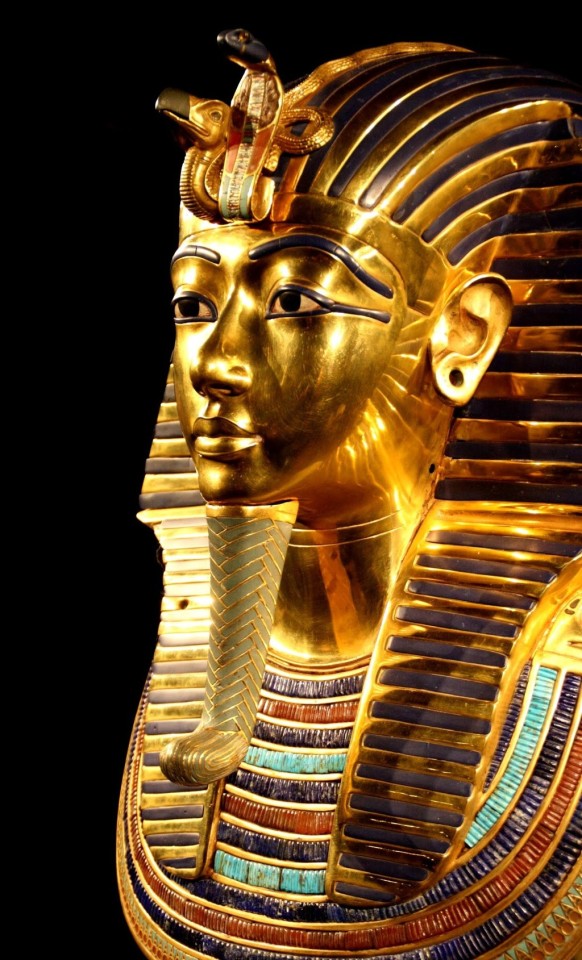
Narmer Palette:
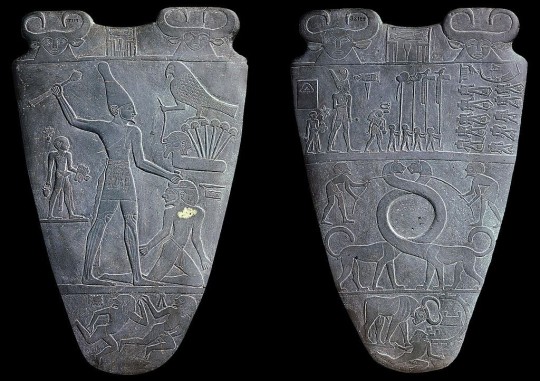
Another ancient civilisation that came to my mind was the Maya Indians. I have researched them in the past for a written school project, so I already know a good amount about their culture.
The ancient Maya civilisation planted their roots in Central America at around 2600 BC – 900 AD. Once they had established themselves in present-day Yucatan, Mexico, they proceeded to prosper and become a sophisticated folk. By 700 BC, they Mayans had developed their own system of writing which they then used to create calendars of the solar system, all carved into stone.
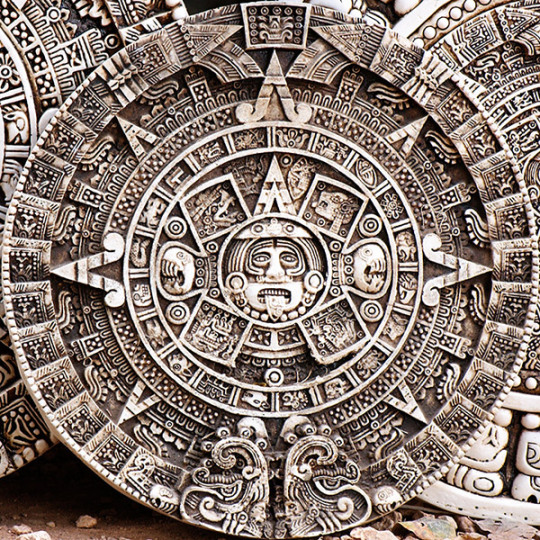
According to the Mayans, the world was created on August 11, 3114 BC (the date of which their calendar begins), and the supposed end date was December 21, 2012.
This ancient civilisation was incredibly rich compared to many other civilisations of the time. They built pyramids, much like the Egyptians, but some of their buildings were even much larger than the pyramids.

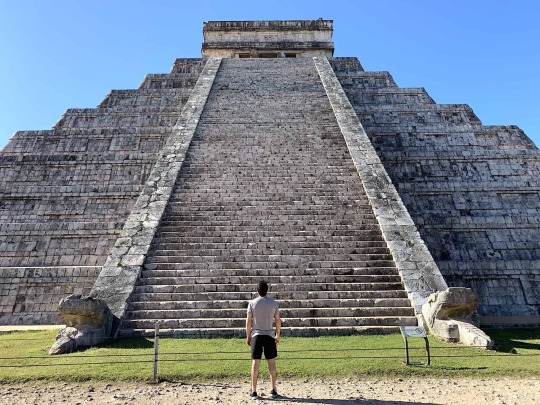
It is still a complete mystery what happened to the Maya Indians. Their population suddenly began to rapidly decline. Why did the Mayans, a highly sophisticated and developed civilisation made up of more than 19 million people, suddenly collapse and disappear during the eighth or ninth century? What happened to them?. Despite this, there are still descendants of the Mayans that live in the central parts of America to this day.
From the last brief, we looked at a lot of narrative based things such as mythologies and folklores. One of the things I stumbled upon was the origin of the myth and folklore about the creature; wendigo. I didn’t further look into this, but this reminded me of it.
The folklore originates from the Native Americans, more specifically the tribe that goes by the name of “Algonquin”. The Algonquin people are natives from Canada and this folk lived and still to this day, live around parts of western Quebec and Ontario, centering themselves around the Ottawa River. Like the Mayans, there are still people identified as having Algonquin ancestry. (from 2016, 40,880 people).
- The Algonquin people have been known by various Europeans since 1603, first encountered by Samuel de Champlain.
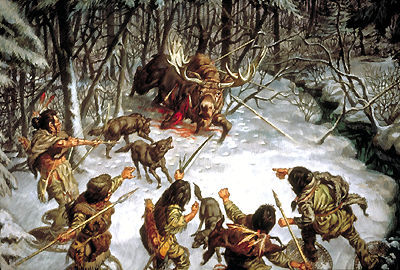
Moose Hunt, artwork by Lewis Parker

Algonquin Canoe, artwork by Lewis Parker

Algonquin traditional territory
The Algonquin hunted, traded and lived in large areas of territories in the Eastern Woodlands Subarctic regions, being independent of one another. Like some of their relatives, the Algonquin used to live in disassembled birch bark dwellings, known better as wigwams.


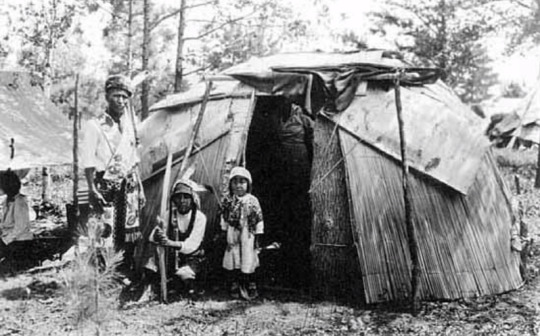
They lives in communities where clans were represented by totems based on different animals such as crane, wolf, bear, loon etc. The clans had incorporated leadership provided by elders which were highly respected within each clan. Intermarriage within a clan was not permitted, even if the people were from different communities all-together.
Their language was known as Omàmiwininìmowin, which is part of the Algonquian language family. The root of this word is Omàmiwininì, which is often used by the community to describe Algonquin people overall.
Within the Algonquin language family are a wide variety of different languages such as Atikamekw, Blackfoot, Cree, Wolastoqiyik, Mi’kmaq, Innu, Naskapi, Ojibwe and Oji-Cree. Within all of these mentioned, the Algonquian language group was the language mostly spoken in Canada, with around 175,825 speakers. The majority of these speakers reside in;
Manitoba (21.7%)
the rest live in;
Quebec (21.2%)
Ontario (17.2%)
Alberta (16.7%)
Saskatchewan (16.0%)
Despite the language being quiet widespread amongst the clans/tribes, it is considered endangered today. Only 1,575 people identify the language as their mother tongue. Algonquin communities work hard to promote and preserve their language and culture through various different programs, such as language courses.
The Algonquin language is often linked to different names of places in Canada, with the reason being that many early French explorer mapped and thereby named features with Algonquin words. Ex. Quebec comes from the Algonquin word kébec, which actually means “place where the river narrows”.
𝖂𝖊𝖓𝖉𝖎𝖌𝖔
The original tale of the wendigo talks about a lost hunter that, during a cold winter, reached intense hunger which drove him to cannibalism to survive. After he had been feasting upon another humans’ flesh, he transformed, his body changing and becoming a humanlike-beast of the wilderness on the hunt for more human flesh to feast upon.
As mentioned earlier, this story originates from the Algonquin people. The details vary rapidly depending on who you ask, as most folklore and tales do. Some people that claim they have encountered this creature say it’s related to Bigfoot, but on the other end of the spectrum, some compare it too werewolves.

An animatronic depiction of a wendigo in a cage on display in “Wendigo Woods” in Busch Gardens Williamsburg, a theme park located in New France.
The mythological create that is the Wendigo is said to be a creature thriving in cold environments, supporting the fact that most of the many sightings of them have been reported in Canada and also the colder states to the North such as Minnesota. Around the turn of the 20th century, tribes people form the Algonquian tribe claimed that the disappearances of people is down the wendigos’ attacking them.
The wendigo is said to be around 15 feet tall (4.57 m.), the body often described as being skeletal or emaciated. A theory on this says that the creature is never satisfied with its cannibalistic urges and kills, obsessively hunting for new human victims and stuck being forever hungry.

Picture of Basil H. Johnston.
A Native author and ethnographer named Basil H. Johnston has described the Wendigo in his book The Manitous as:
“The Wendigo was gaunt to the point of emaciation, its desiccated skin pulled tightly over its bones. With its bones pushing out over its skin, its complexion the ash gray of death, and its eyes pushed back deep into the sockets, the Wendigo looked like a gaunt skeleton recently disinterred from the grave. What lips it had were tattered and bloody… Unclean and suffering from suppurations of the flesh, the Wendigo gave off a strange and eerie odor of decay and decomposition, of death and corruption.”
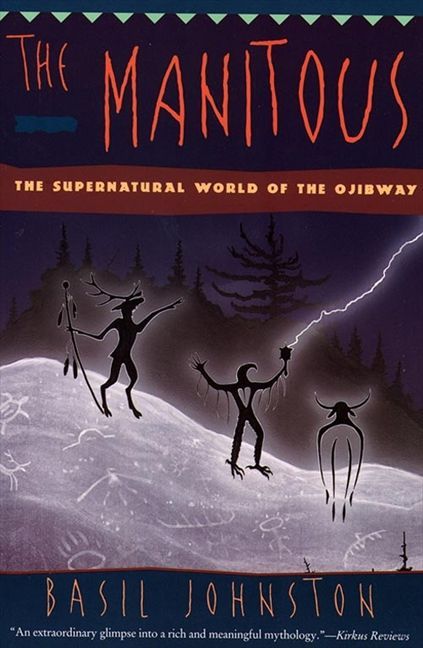
The front cover of Basil H. Johnstons’ book The Manitous, published 1995.
According to Nathan Carlson, an ethno-historian, it has also been said that the deadly cannibalistic creature has large, razor sharp claws and massive eyes, much like and owl. But some people prefer to describe it (the wendigo) as a skeleton-like with skin in the colour of ash. But no matter which version of the wendigo’s appearance seems the most accurate and possible, it is most obviously not a creature you’d want to run into anywhere in the wild.
Another thing that I found quite interesting about the Native Americans in general was the way that their belief reached a spiritual level (spirit animals, animal totems etc.). I did some digging when looking into Animal Totems and sacred Spirit Animals in Native American belief;
According to this website (Legends Of America, Exploring history, destinations, people, & legends of this great country since 2003.), there is a huge list of different animals involved with the Native belief. A totem (a spirit being) is considered a sacred object or a symbol for a clan, tribe, family or even just an individual. Some tribes and their traditions proves that each person is somehow connected with nine different animals, also known as spirit guides or power animals, that will accompany the person through their life. Each animal represents something different, meaning that they move in and out of ones life, depending on what path or direction you take in life and the journey.
The same tribes also believe that totem animals is one that i always with you in your life, physically and spiritually. In other words, the totem animal that you are given acts as the main guardian of all your spirits. With this animal, a connection is shared and created, either through an interest in the said animal, the characteristics, dreams or other interactions (ie. with the animal in the physical world).
Because the list is quite long, the entirety of it can be found here.

Restored Piasa Bird carving, located along the Mississippi River, near llinois River.
Sources:
thecanadianencyclopedia.ca “The Canadian Encyclopedia, Algonquin”
allthatsinteresting.com “The Native American Legend Of The Wendigo — The Frostbitten Monster Of Your Nightmares By; All That's Interesting”
legendsofamerica.com “Exploring history, destinations, people, & legends of this great country since 2003.”
From studying these different early periods of civilisation, I have decided to choose just two of them to inspire my diorama; Mayans (the fact and idea that this blossoming civilisation suddenly disappeared without a trace as to tell why) and Native Americans (most specifically the Algonquin tribe and their folklore).
0 notes
Text
This is My Blood
Blood is a fluid of life. And, as with life, we’ve had a bit of an odd relationship. At one time or another, I’ve colorized it, been taught how to drink and stop it, given it, then told I couldn’t.
I was in and out of the hospital a lot as a young child. Sometime between ages three and six, I had blood drawn and wholeheartedly believed it was was orange. Of course there were no witnesses to what I considered a medical miracle. The enthusiasm with which I reported my discovery to my mother and brother was understandably met with great skepticism. Instead of making the rounds on popular TV talk shows of the day like Sally Jesse Raphael, Donahue, or Geraldo, my unwavering conviction became a joke around the dinner table.
I would put on a veneer of calm, but remain seething underneath at the disbelief of those closest to me. I wanted to lash out, “You’ll see! One day, Phil Donahue is going to pick up my story; he just has to finish introducing hip-hop culture to a wider (whiter) audience first. I don’t care if the fainting spells some of his audience members experienced were staged. I’m going to be huge.”
Phil’s call never came. As colorblind as I was to the truth about my blood, I wanted to believe its orange hue was real. Part of me still does. Part of me always will.
Growing up Catholic meant my faith tried to impress upon me that sacrifice was the highlight of the mass, and I'd damn well better pay attention because my soul was riding on the line. If I blinked, I might miss a process called transubstantiation, whereby bread and wine became the actual flesh and blood of Christ, not cheap knock-offs from a Chinese factory, not symbols, not representations (insert savory pun here).
I can’t tell you how many times I stood nearby an altar as a server and heard a priest say:
“Through the mingling of this water and wine, may we come to share in the divinity of Christ, who humbled himself to share in our humanity.”
Then a big one:
“Take this, all of you, and drink from it: This is the cup of my blood, the blood of the new and everlasting covenant. It will be shed for you and for all so that sins may be forgiven. Do this in memory of me.”
*bell rings*
If translators argued about how Latin should be translated into other languages, or if a translation isn’t valid, the consecration of the bread and wine may not be either, I argued that orange should be added to the words spoken by a priest during the consecration. This way, orange blood could be shed for me and for all, and account for any misremembrance (of me) when I finally got to see what really happened after I’d died.
Why were we so concerned with the Last Supper anyway? If Christ humbled himself to share in our humanity, surely he had a sense of humor too? There's no way he got everything right on the first try. What if all the other suppers were dress rehearsals? Why don’t we hear about the outtakes and blooper reels that may be buried somewhere beneath the Vatican? A collection of Last Supper fuck-ups could have made my Catholic upbringing so much more relatable.
Imagine:
“Take this, all of you and uh…. uh… LINE!”
“Cut! Peter! Quit playing with you your food! That’s it! You are no longer the rock upon which I will build my church. You’re going to deny me anyway…”
“Oops. Can we edit that last prediction out and take it from the top? ROFL!”
“Lord, I don’t mean to sound ungrateful, but this chicken is woefully undercooked. A skilled veterinarian could still save it.”
“Guys… I have a confession to make… I’m not God’s only son… In about 2,000 years, Steve McPherson from Eau Claire, Wisconsin is going to appear on something called television and tell a man named Phil Donahue that he has a shocking revelation to share with the world about his paternity. No one will believe him, but what he’ll have to say is true. It’s all part of the plan.”
I’ve never been much of an athlete. Still, as a native Ohioan and graduate of The Ohio State University, I’ve acquired a strong distaste for the Michigan Wolverines during my lifetime. My lack of athletic ability meant I didn’t have an opportunity to sacrifice my body (or blood) to defeat them on the gridiron. But during my freshman year, which coincided with the 2000 football season, I decided to try to beat *ichigan the best way I knew how: giving blood in the annual battle to see which university could donate more pints to the American Red Cross during the week of the game.
I sat in a chair designed to accommodate a blood donor and began squeezing the little ball I’d been given to regulate the flow of blood from my vein to the collection bag. Someone told me that giving blood wasn’t a race, but I forgot all about that as I watched the bag fill. It took me between six and seven minutes to donate my pint. I thought I wouldn’t need to eat a piece of Adriatico’s pizza (a thick, square-cut campus staple) that the same person said would be available if I felt lightheaded after donating. I stood up, and began to feel dizzy almost immediately. Having a piece of pizza sounded like a good idea after all.
By 2005, I had been to Serbia and back once in search of my next adventure. As much as I tried during and after college to distance myself from my humble beginnings, this was when I discovered the Tridentine Latin mass at Holy Family Church, and began to rededicate myself to the idea of religious piety.
The Tridentine mass attracted a more conservative, hardcore Catholic. I didn’t always see eye-to-eye with the attendees, but I enjoyed the solemnity of the celebration, the music, and the connection to a religious past that I’d only heard and read about; I was born almost twenty years after the guys at Vatican II decided having mass in local languages, instead of Latin, would make the faith more appealing to the masses (ha).
One of the more ardent attendees was Sister Margarita. Originally from Hungary, she’d been a medical doctor before becoming a bride of Christ. She emphatically stated that only males should serve mass, as only the blood of the new and everlasting covenant should be on the altar. I didn’t comprehend what she meant by this until a late-night shower thought I had several weeks later. When I finally connected the dots, I decided it was best to continue my studies and get back to the former Yugoslavia in pursuit of my dreams. I had to worry about my own body and blood after all.
I tried to donate blood again in 2013, while working for one of the largest financial institutions in the world. I’d been to Serbia and back twice more by then. I had a stable income for the first time in years, and lived in a place nicer than anywhere I’d ever been. Still, I never lost the desire to give back to the community that I learned from being a Boy Scout. Among the many things scouting taught me was first aid, including mnemonic devices such as, “If the head is pale, raise the tail” to help with blood flow, and tactics to handle bleeding events.
The bank frequently had philanthropic efforts, including blood drives,that didn’t make the news, which suited me just fine. I jumped at the chance to give blood again. I knew there was always a need, and I remembered how accomplished I felt during *ichigan week years before, despite feeling like I was going to pass out afterward.
I had to fill out a questionnaire before I could donate, so I was directed to sit a table behind the privacy of a curtain. I breezed through most of the questions until I came to one I really had to think about. It asked if I had spent more than four years in any of a list of counties between 1977 and the present. On the list was the former Yugoslavia. It was close, but I didn’t believe I'd spent more than four years there. I seriously thought about complaining that the question was unfair. I hadn’t been born until four years after the date range began, and I couldn’t account for all of my parents' whereabouts as they were carrying the egg and sperm cells that would later unite to create me.
Despite my reservations, I filled in the “yes” circle because I was nervous. A scout is trustworthy, but I couldn’t remember the exact dates of every flight I’d taken to and from the land of southern Slavs. Had I lied, no one would have known about it until well after the fact. I decided not to risk it then, but I still wonder if there’s a support group somewhere for people who’ve been blacklisted by the American Cross after inadvertently fibbing about their donation. If it was up to me, I’d call it: This is My Blood.
I can see the group meeting in a basement of a local Methodist church on Wednesdays to trade anemia anecdotes, AIDS adventures sickle-cell stories, and transfusion tales. There’d be lots of hugs, and somebody would always break down crying during story time. Me? I’d be content to sit quietly with my complementary coffee and doughnut, and have people wonder what terrible things I must have done to end up there because I never shared.
A guy in scrubs came to collect my questionnaire and left me waiting like a game show contestant who’d given their answers confidently, but instantly regretted not being 100 percent certain once they realized their life could change for the better, or they could fail miserably. Adding to the tension, each contestant would be well aware that their potential elation (or agony) would only be amplified by the reactions of a studio audience filled strangers, and those yelling at their televisions while watching from home.
Take this, all of you, and drink from it: This is the cup of my blood, the blood of the new and everlasting covenant…
I knew I didn’t have AIDS or another sexually transmitted disease, so I expected scrubs to return pretty quickly. Early Christians probably felt the same way about Jesus after his ultimate sacrifice. More that 2,000 years later, as my seconds of waiting turned into minutes, stories I’d heard of ancient blood oaths taken on the Balkans started swirling through my head. I’d never taken a blood oath that I could remember, but I do remember watching the scene from My Girl when Thomas J. and Vada became blood brothers. It was disgusting.
…it will be shed for you and for all so that sins may be forgiven…
I suddenly longed for forgiveness, not from God, but from the pencil I’d used to mark that regrettable, uncertain response. I couldn’t go back and tell them that while most recently in Serbia, I’d eaten a largely vegetarian diet, consistent with that of my self-described fat lawyer turned yoga teacher. It was too late.
No bells rang when scrubs finally pulled back the curtain after five minutes that felt like five hours. He admitted he’d never had anyone else answer yes to the question that included Yugoslavia, which was why he’d been gone so long. Then came the bombshell: He said answering yes to that question meant I might have Mad Cow Disease lying dormant in my brain, and I shouldn’t donate blood again until a vaccine was developed against Mad Cow Disease in humans. The fail sound from The Price is Right, my favorite game show, played in my ears.
I don’t know what the symptoms of Mad Cow Disease in humans are, but for what it’s worth, I'm proud to say that I rarely moo with rage or regret. Until I can donate blood again, I encourage those who can to do so whenever possible.
Do this in memory of me.
0 notes